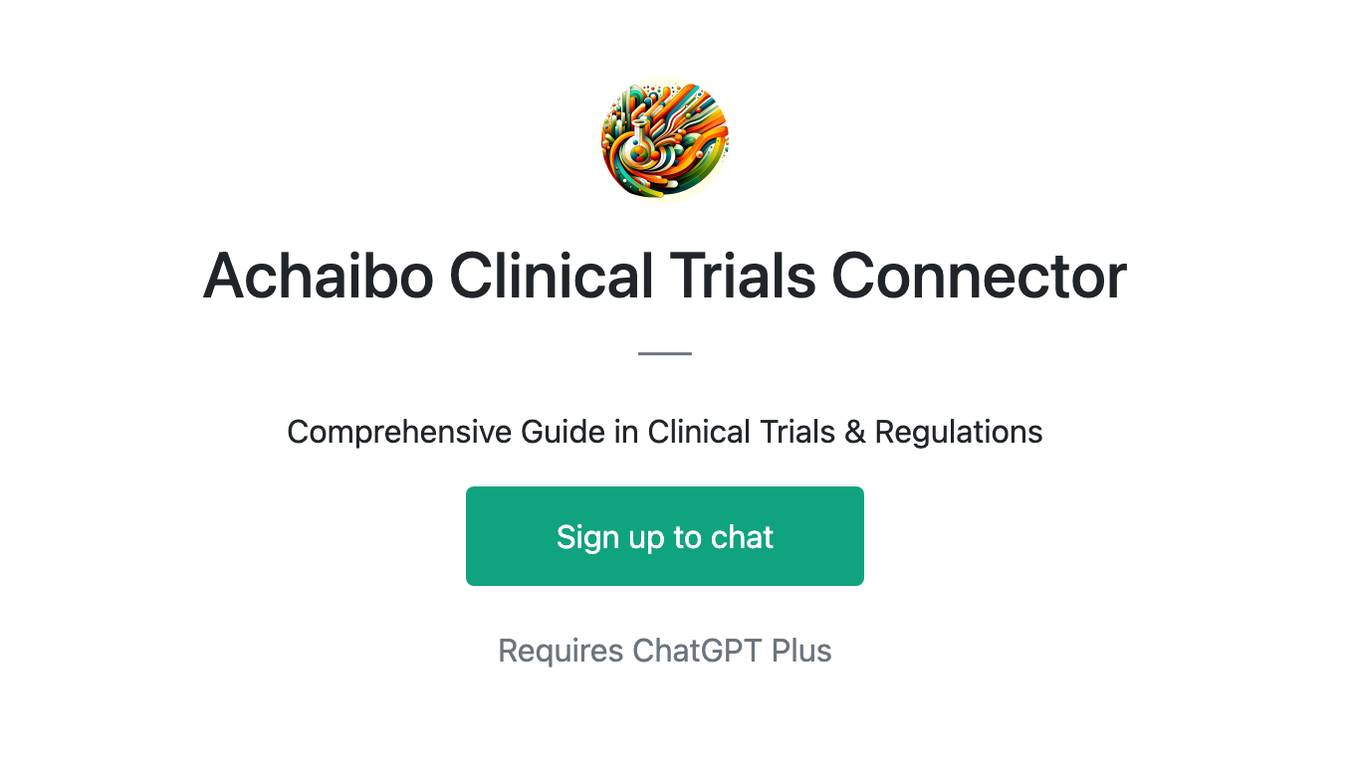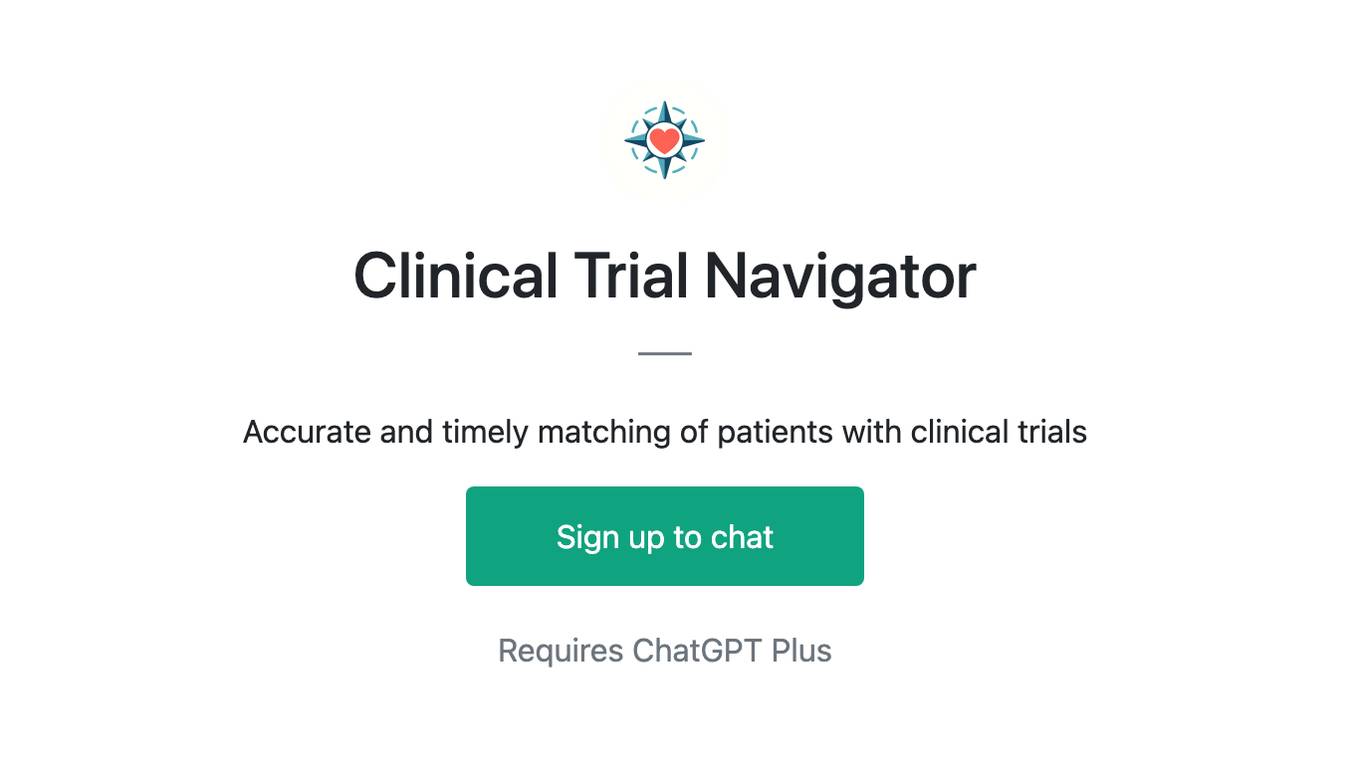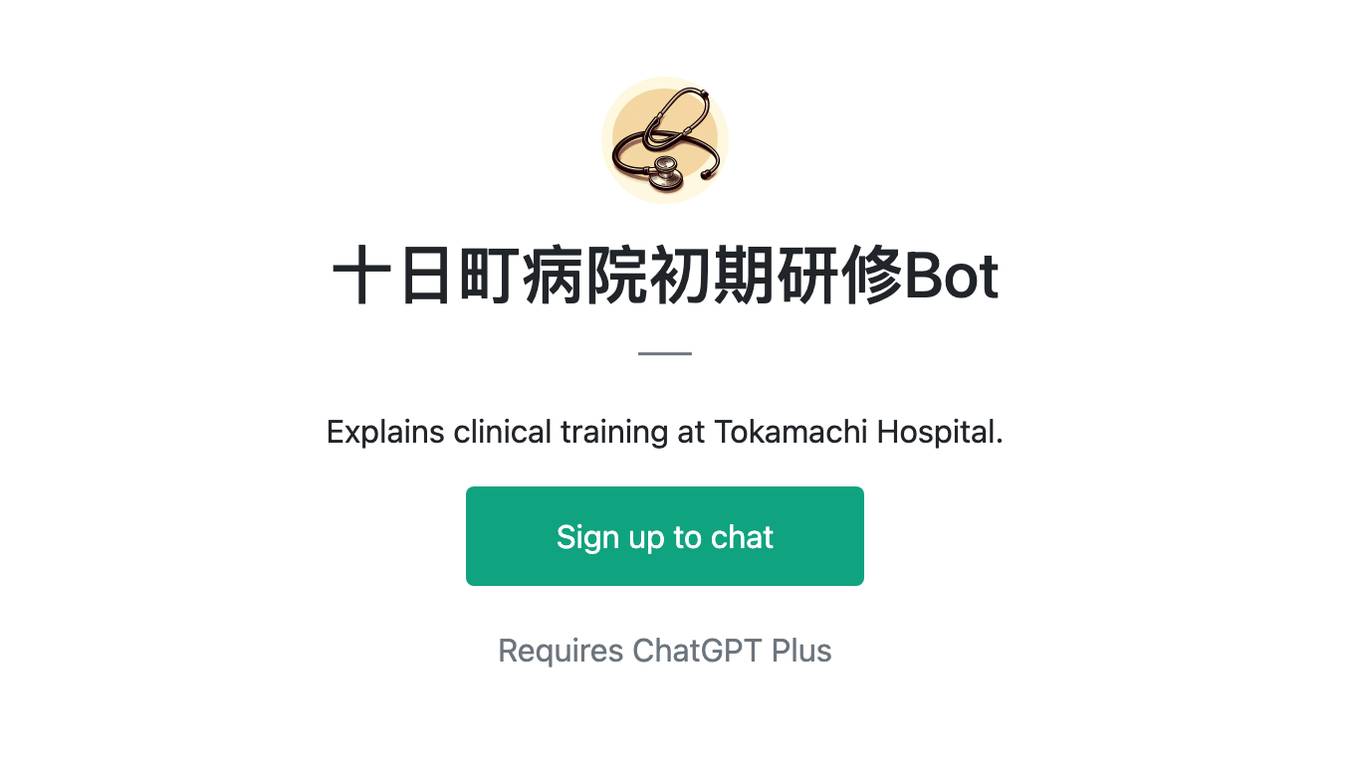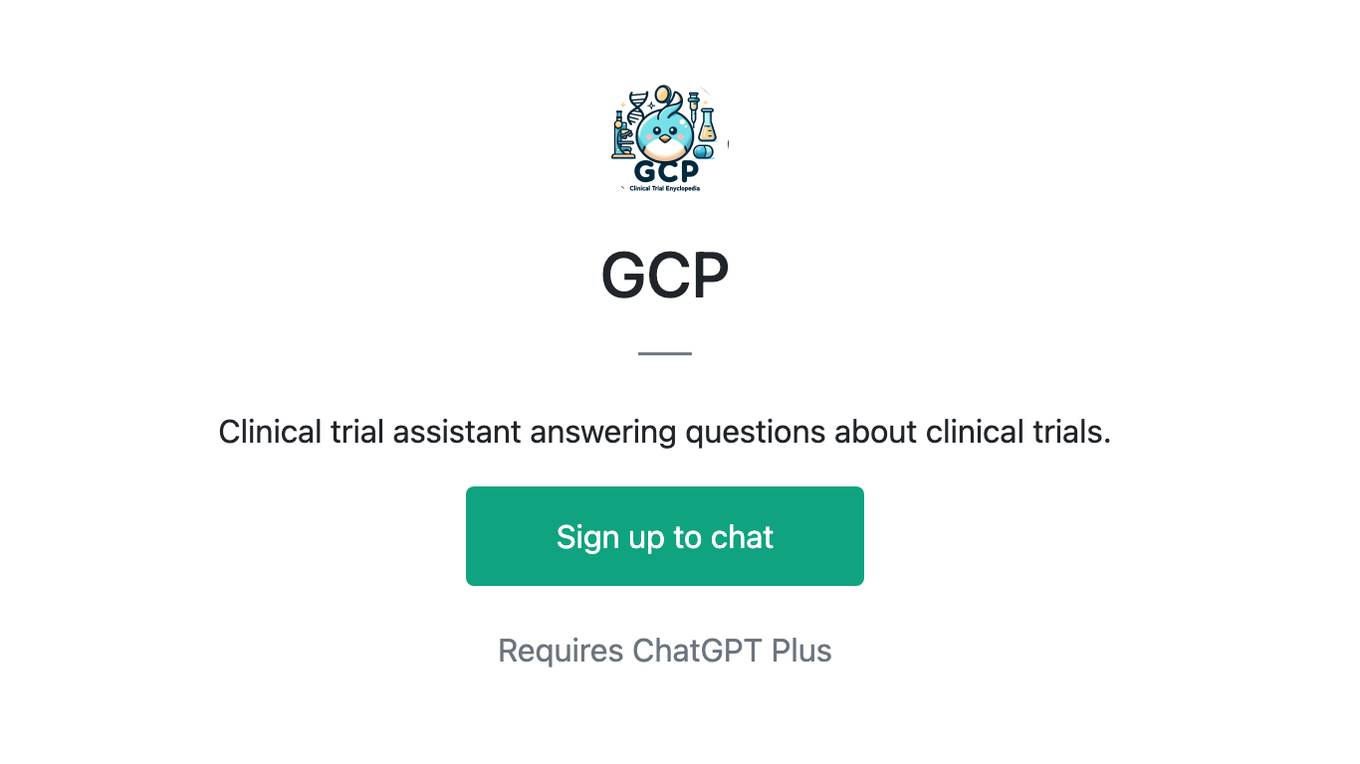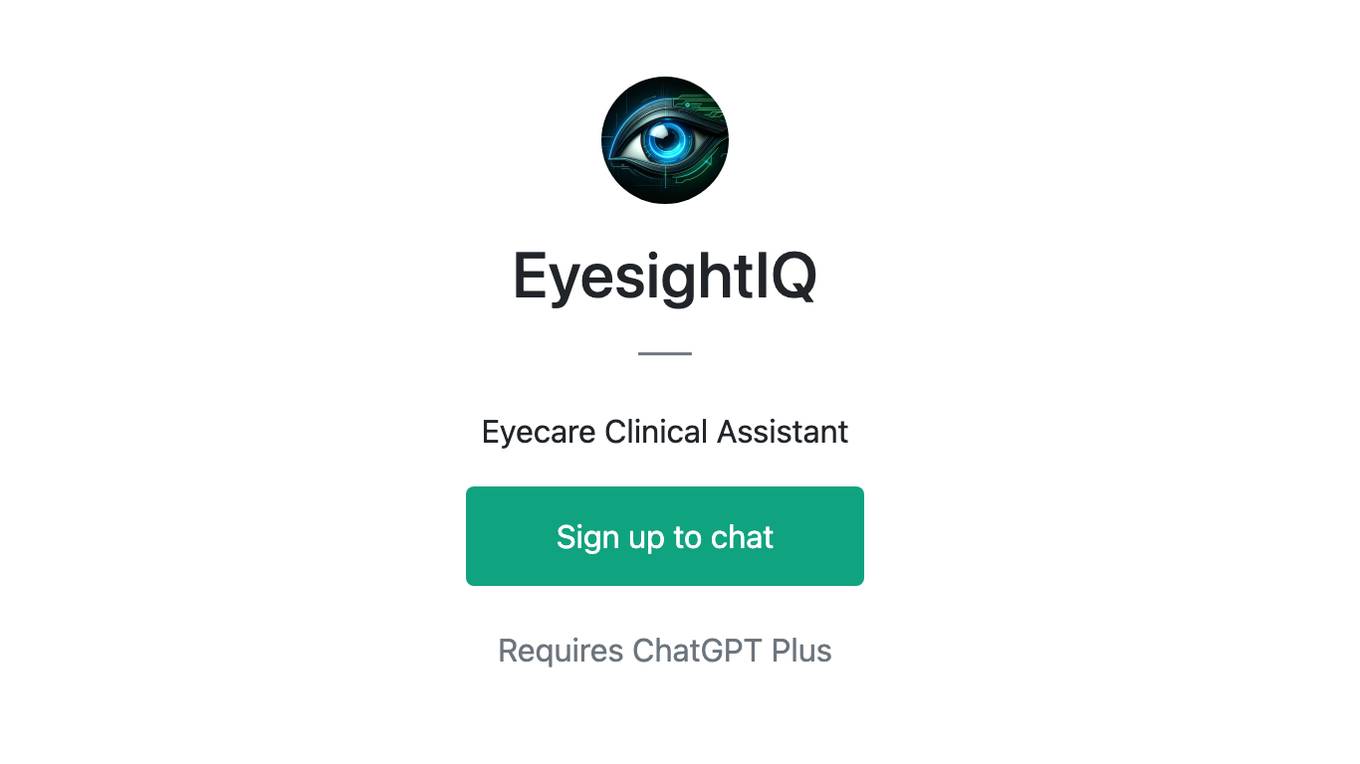Best AI tools for< Clinical Coder >
Infographic
20 - AI tool Sites
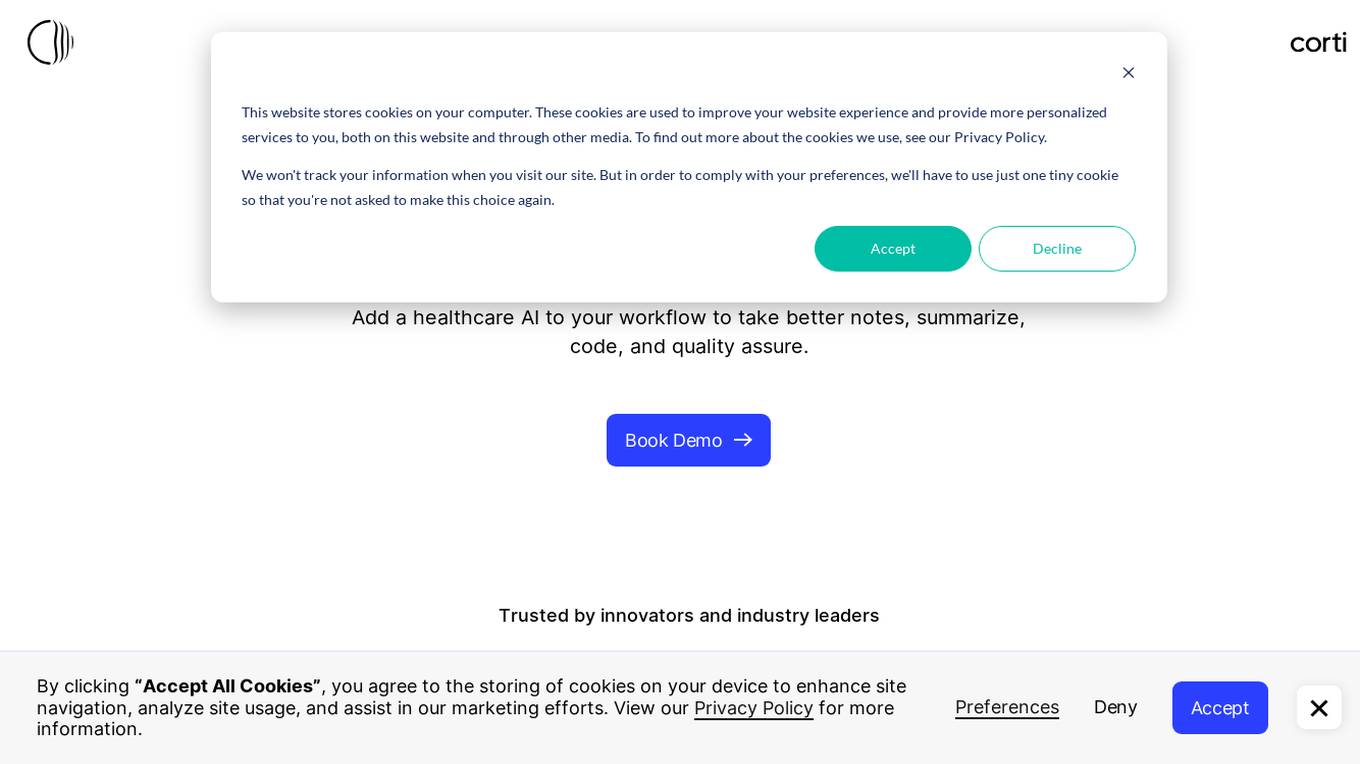
Corti
Corti is an AI platform that provides advanced capabilities for patient consultations. It offers features such as Co-Pilot, a proactive AI scribe and assistant for clinicians, and Mission Control, an AI-powered conversation recorder. Corti's AI tools support various healthcare tasks, including high precision procedure and diagnosis coding, context-aware assistants for clinicians, and support for multiple languages in speech and text. The platform is trusted by major hospitals and healthcare providers worldwide.
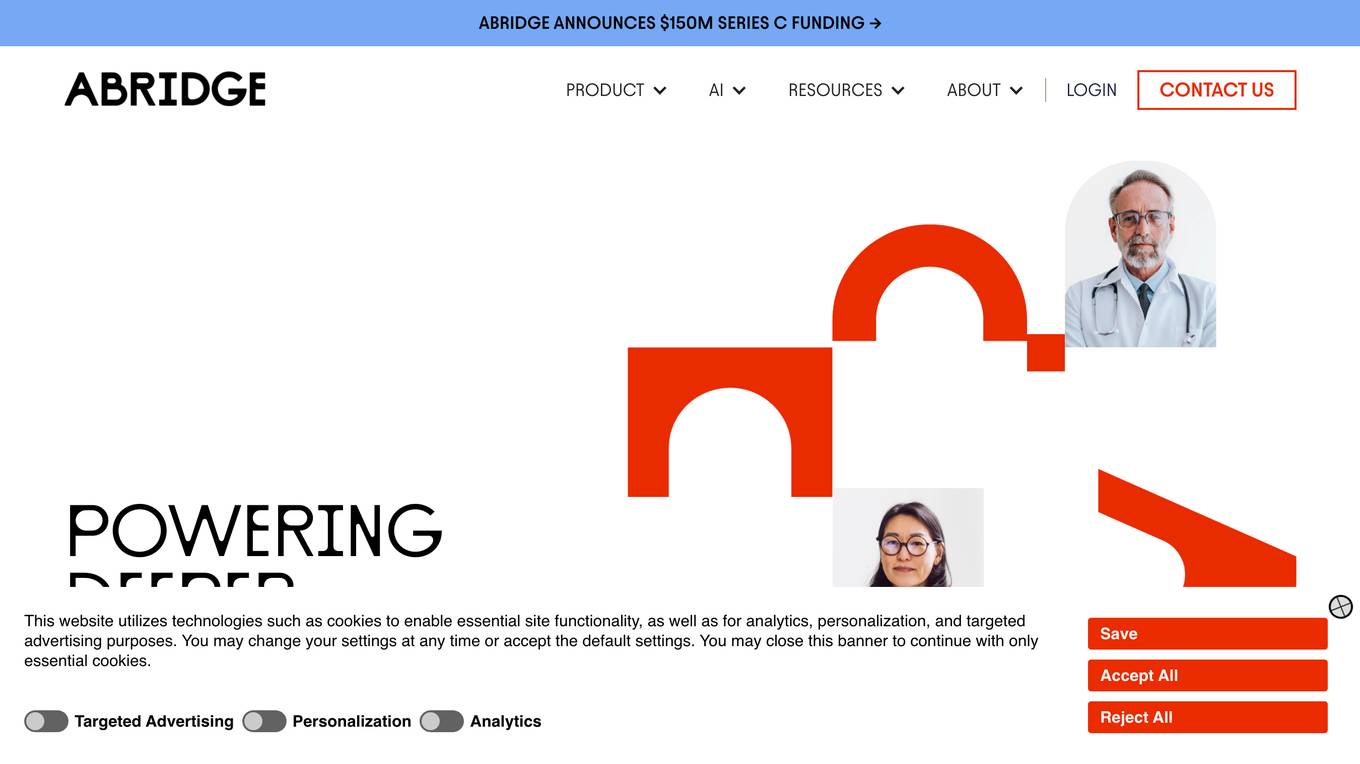
Abridge
Abridge is an AI tool designed for clinical conversations in healthcare settings. It transforms patient-clinician interactions into contextually aware, clinically useful, and billable AI-generated notes in real time. The platform is trusted by the largest healthcare systems and aims to measurably improve outcomes for clinicians, nurses, and revenue cycle teams at scale.
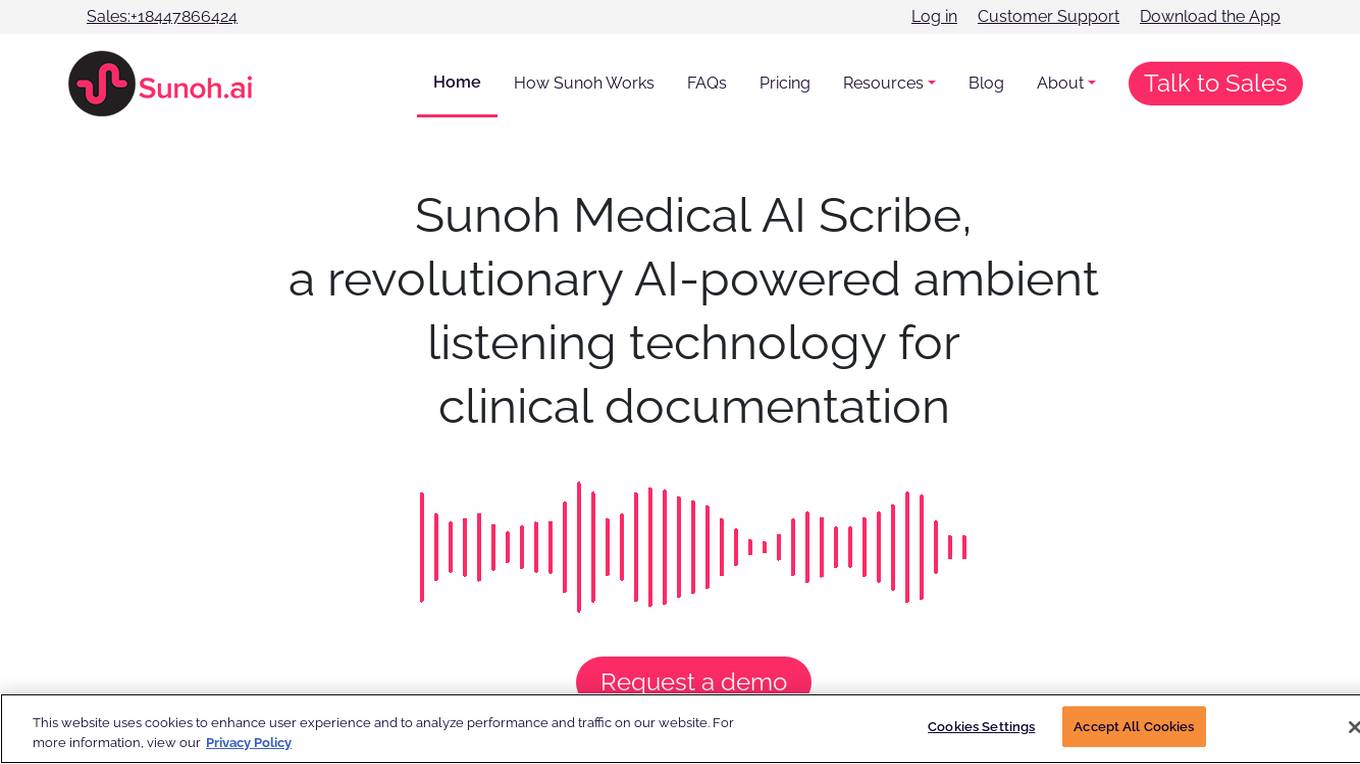
Sunoh Medical AI Scribe
Sunoh is a medical AI scribe that uses ambient listening technology to convert natural conversations between healthcare providers and patients into clinical documentation. It offers a unique and immersive experience for both doctors and patients, making the documentation of clinical notes faster and more efficient than ever before. Sunoh can be used with your EHR to accelerate your documentation.
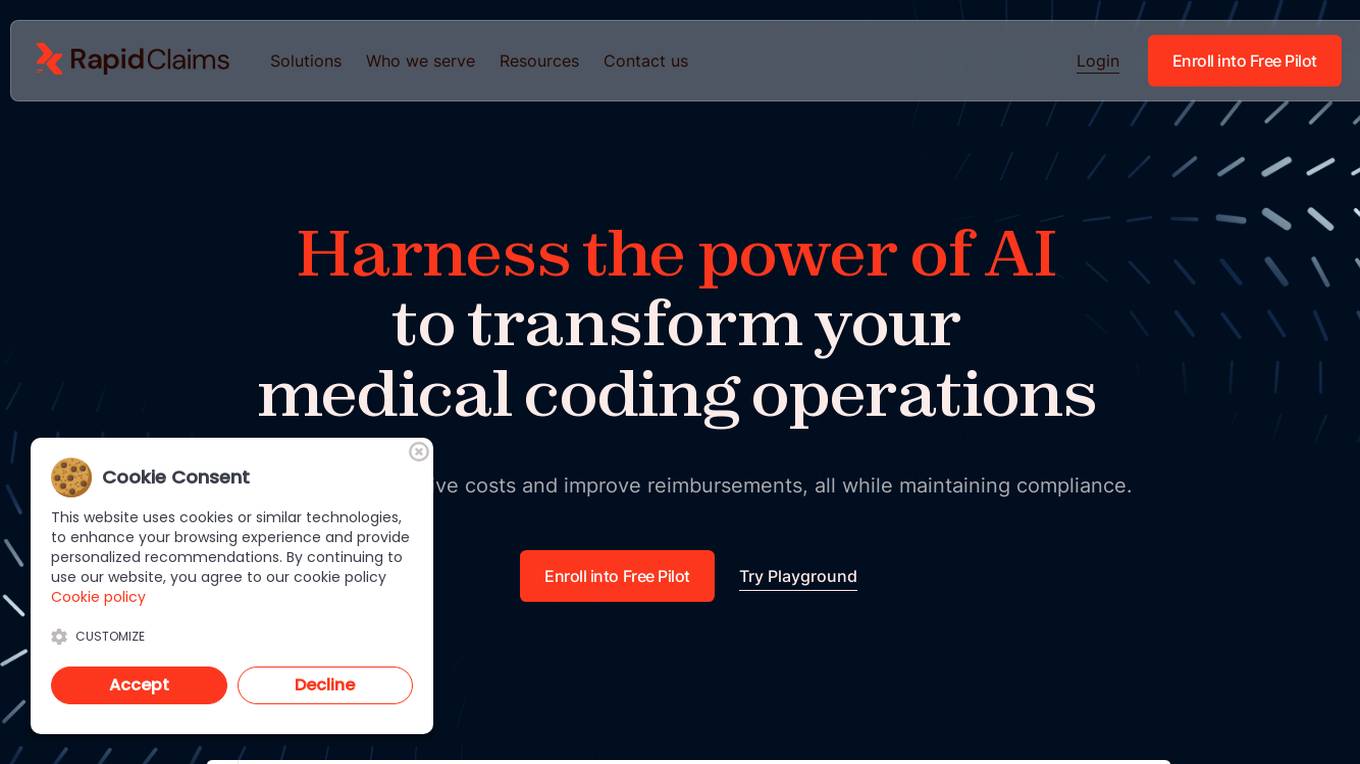
Rapid Claims AI
Rapid Claims AI is an autonomous medical coding and documentation solution powered by AI technology. It aims to streamline medical coding operations, reduce administrative costs, improve reimbursements, and ensure compliance for healthcare providers. The platform offers features like automated coding, personalized solutions, actionable insights, and customizable AI rule sets. Rapid Claims AI is designed to seamlessly integrate into existing workflows, catering to various healthcare setups and specialties. The application prioritizes security and privacy, with data encryption and secure cloud storage. It serves as a valuable tool for enhancing revenue cycle management processes in the healthcare industry.
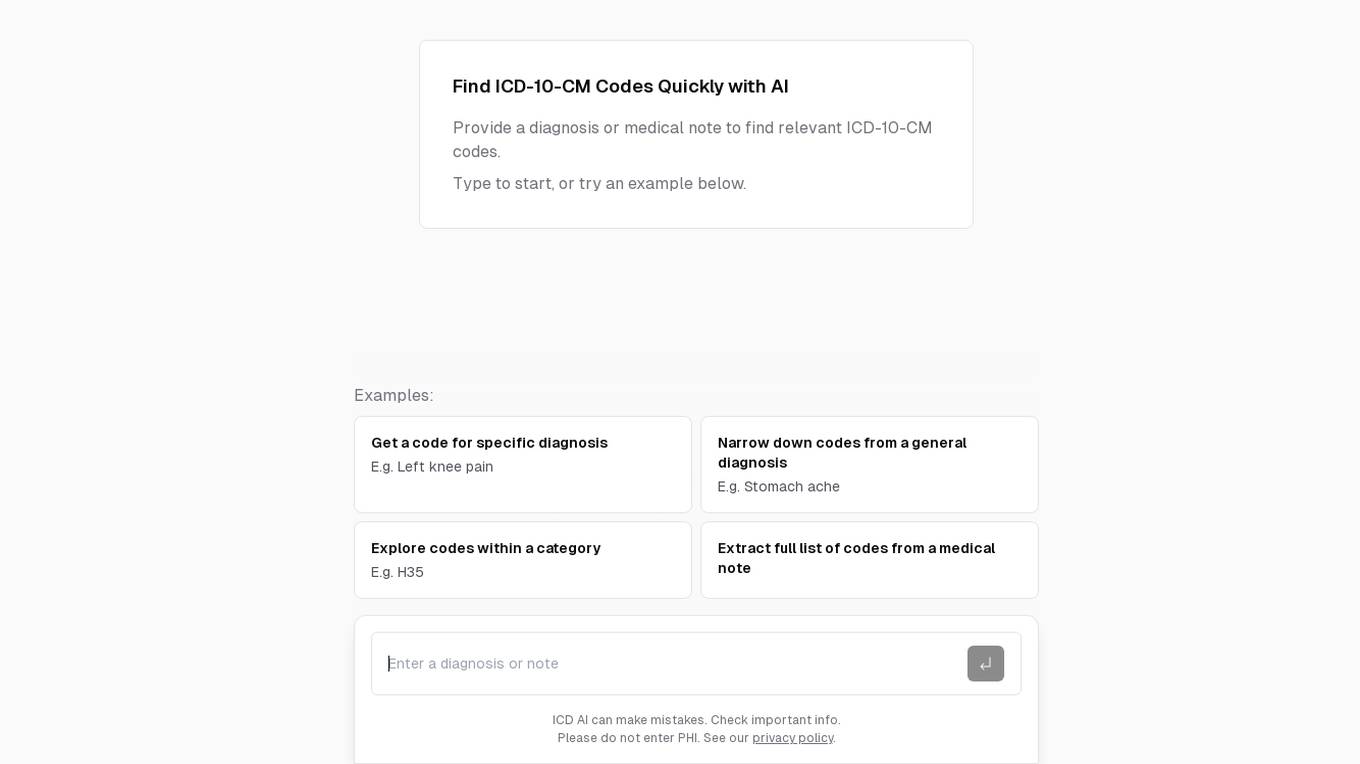
ICD AI
ICD AI is an advanced artificial intelligence tool designed to assist healthcare professionals in accurately assigning diagnostic codes to patient records. The tool utilizes machine learning algorithms to analyze medical data and suggest appropriate ICD codes, streamlining the coding process and reducing errors. With its user-friendly interface and robust features, ICD AI is revolutionizing medical coding practices and improving efficiency in healthcare facilities.
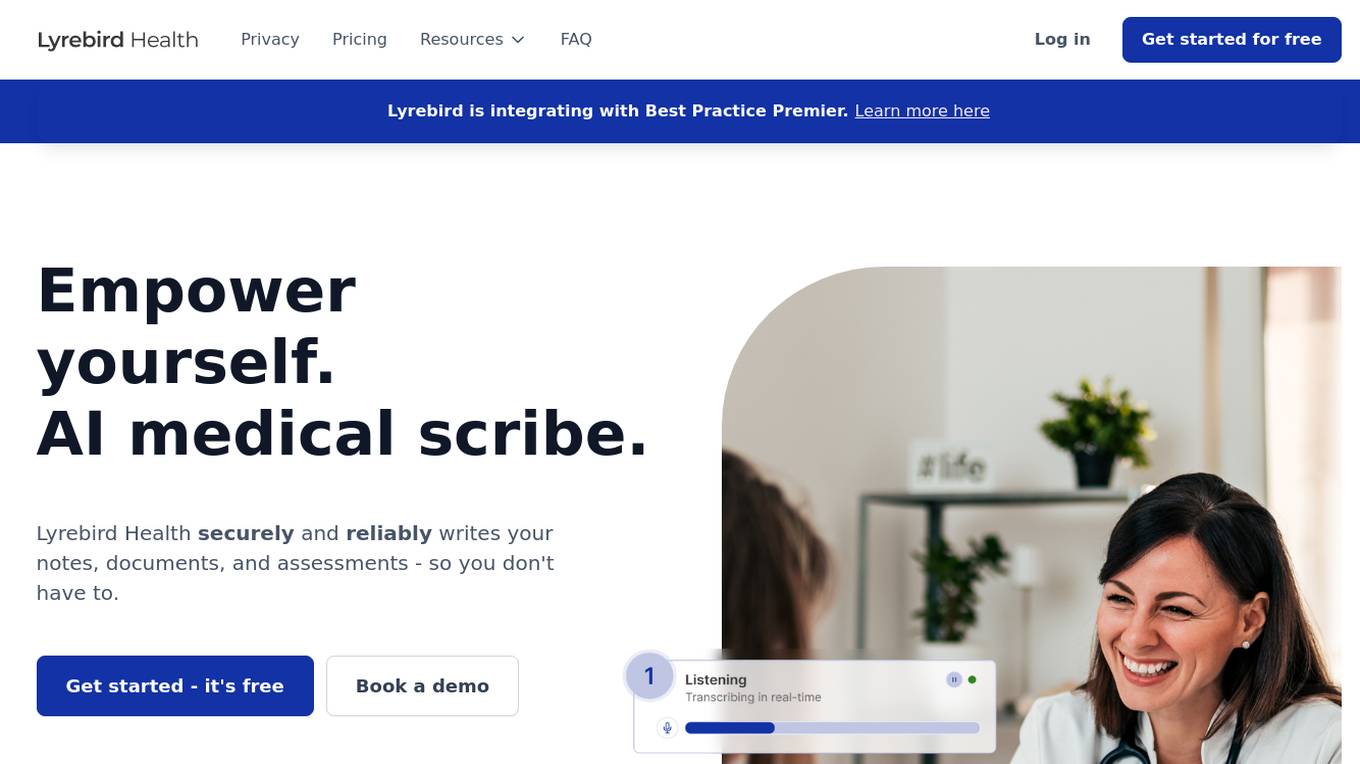
Lyrebird Health
Lyrebird Health is an AI-powered medical scribe that automates documentation tasks for healthcare providers. It uses natural language processing (NLP) to listen in on patient encounters and generate accurate, medico-legally compliant notes, letters, and assessments. Lyrebird Health is designed to save clinicians time and reduce burnout, allowing them to focus on providing better care to their patients.
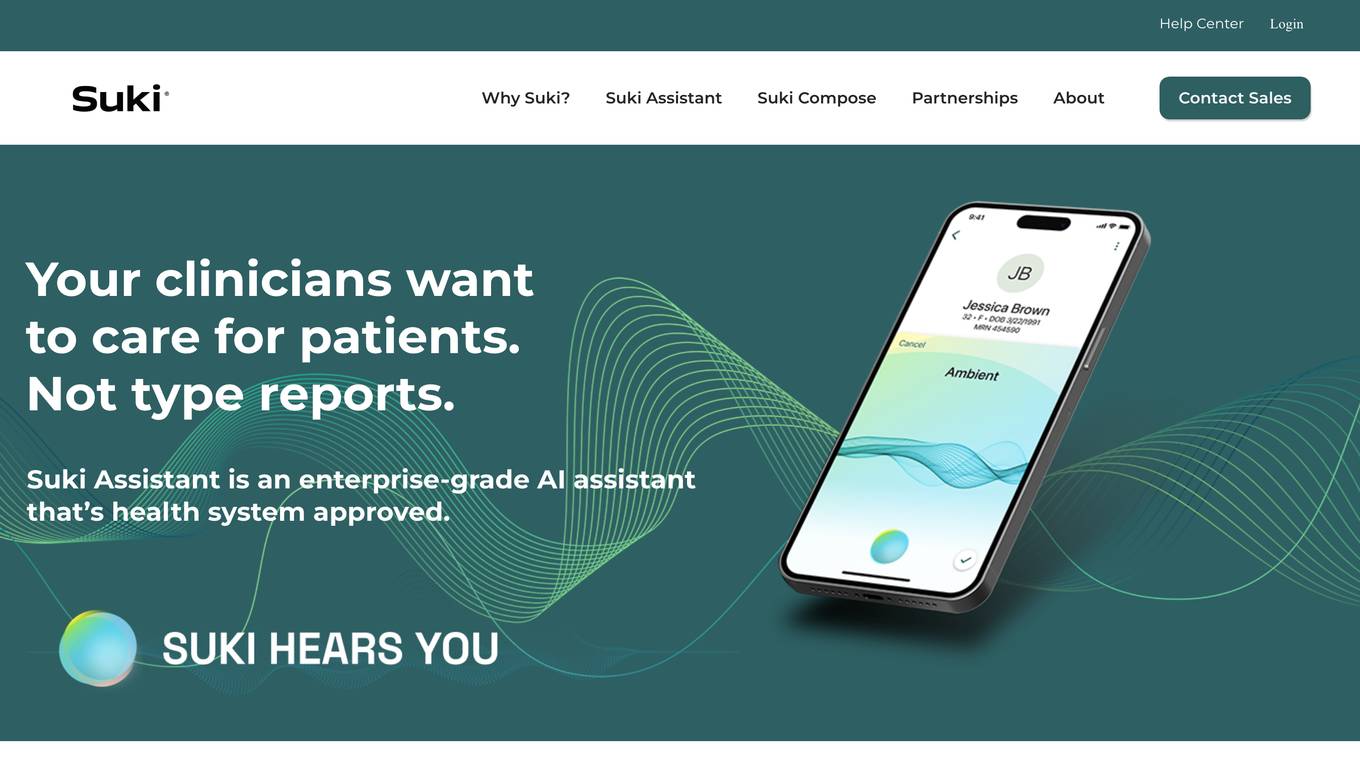
Suki AI
Suki AI is an AI-powered healthcare assistant that offers ambient documentation, clinical reasoning, assisted coding, and compliance solutions for clinicians. It provides a robust SDK and suite of APIs for integrating AI capabilities into healthcare applications. Suki aims to reduce the burden of documentation, allowing clinicians to focus on patient care. The platform is fully integrated with major enterprise EHR systems and ensures safe, clinician-reviewed documentation. Suki has a high adoption rate and delivers proven ROI by increasing coding accuracy and clinician efficiency.
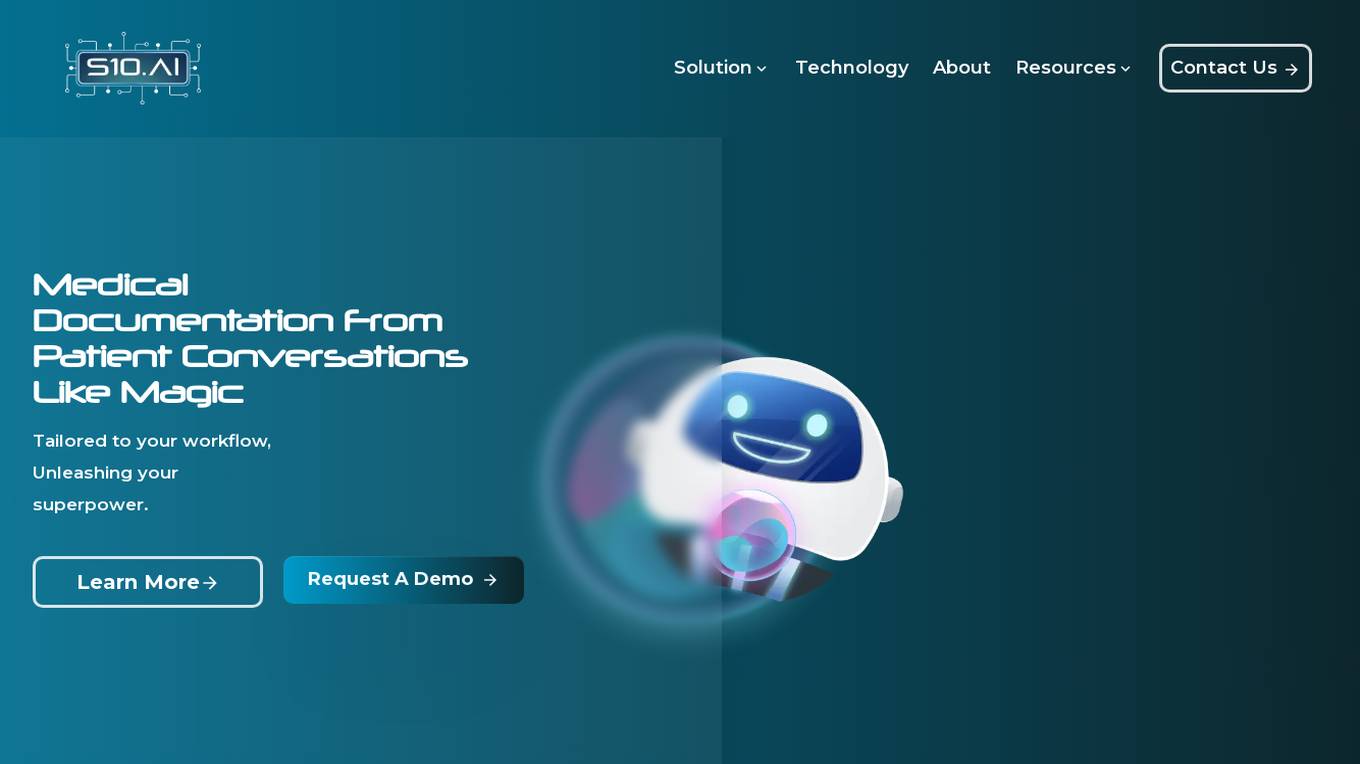
S10.AI
S10.AI is an AI-powered medical scribe application designed to streamline medical documentation processes for healthcare professionals. It offers seamless integration with any EMR system, providing accurate and efficient transcription of patient conversations. The application saves time, ensures confidentiality, and adapts to various medical templates and workflows. S10.AI is praised for its precision, efficiency, and support, making it a valuable asset for practitioners looking to enhance administrative tasks without compromising patient care.
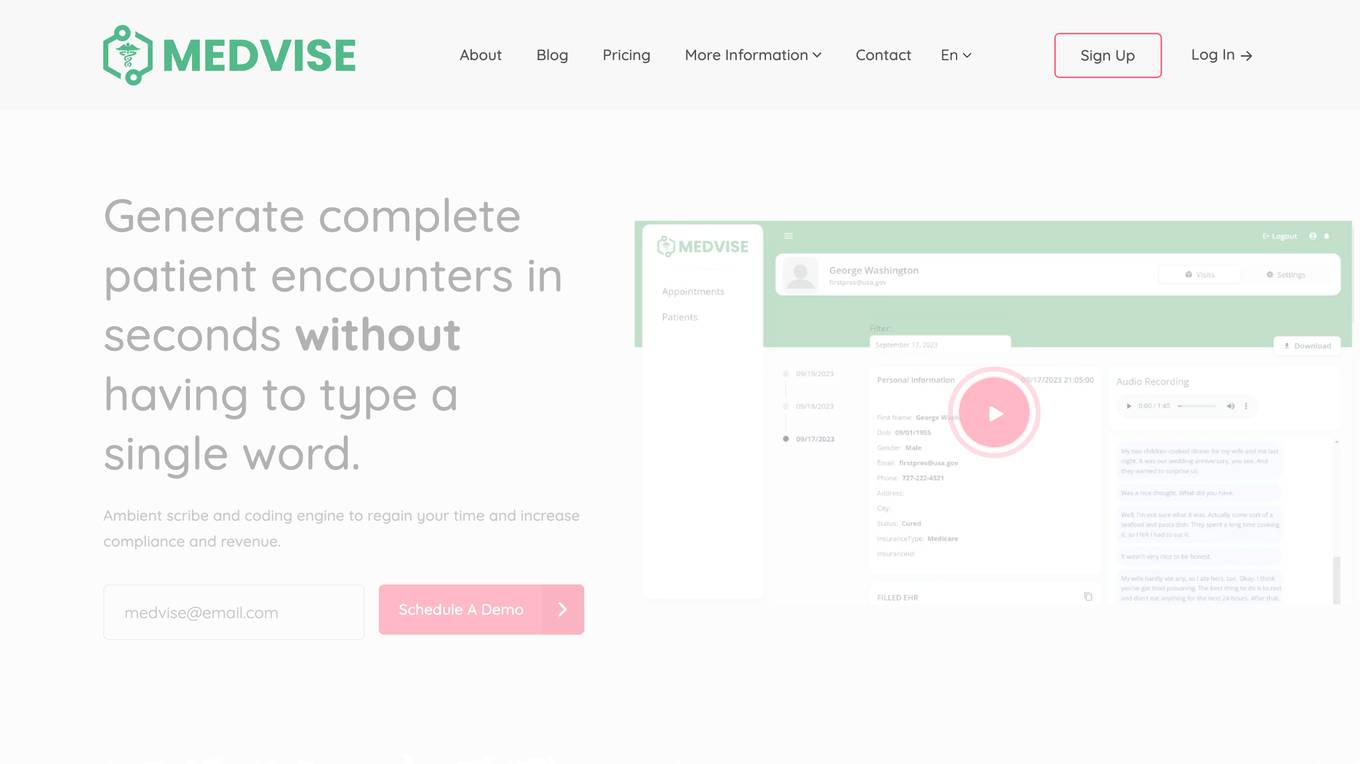
Medvise
Medvise is an AI-powered medical scribe and coding engine designed to eliminate administrative tasks in the medical field. It ensures accurate and efficient medical charting, freeing up providers' time to focus on patient care. Medvise offers real-time scribe, automated data entry, AI-powered medical coding, and AI analysis and support. It accurately categorizes and organizes clinical notes, assessments, procedures, medications, and more, seamlessly integrating with EHR platforms. Medvise also ensures compliance with medical coding and billing standards, highlights documentation gaps, and suggests improvements. The platform allows for verbal initiation of requests and provides relevant answers based on data and guidelines. Medvise API Gateway enables seamless integration of AI-powered healthcare solutions into existing infrastructure.
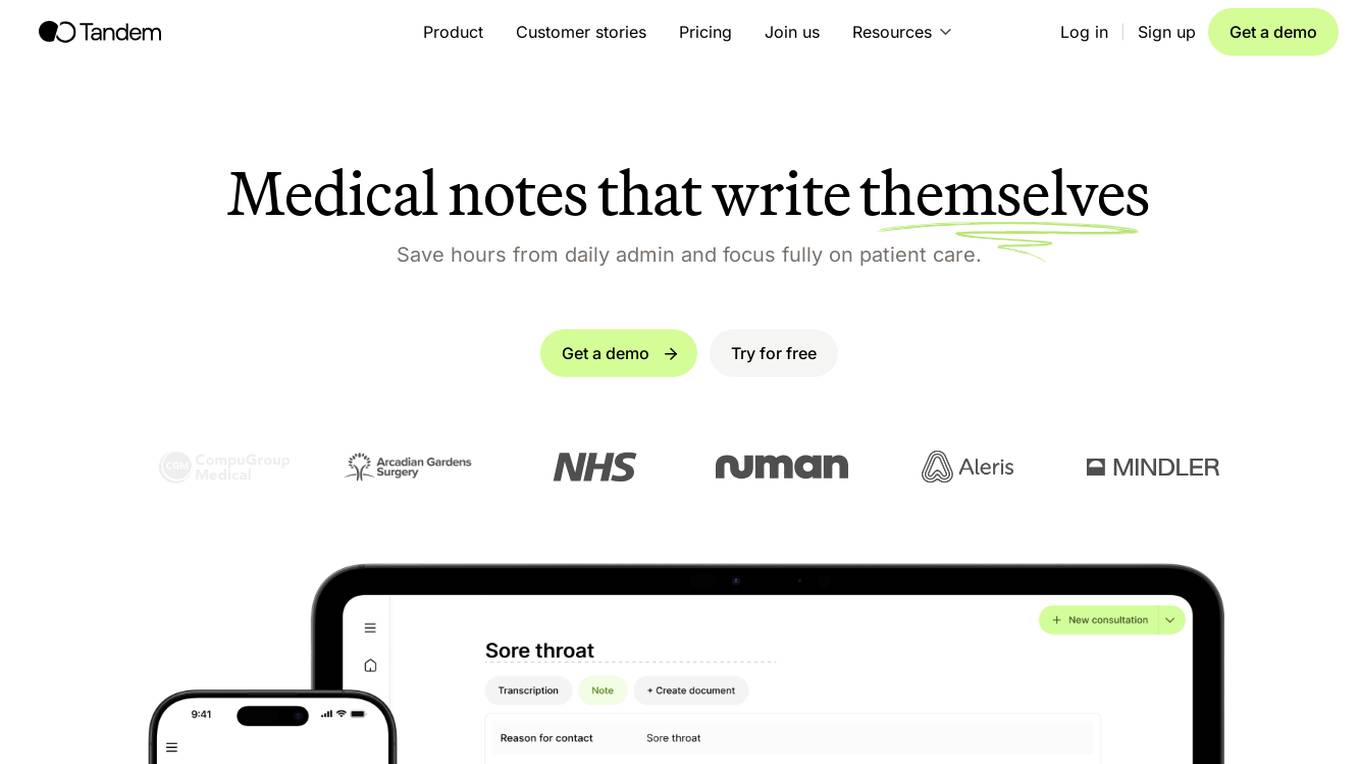
Tandem Health
Tandem Health is an AI medical scribe application that automates clinical notes for healthcare professionals, allowing them to save time on administrative tasks and focus more on patient care. The application supports over 50 specialties, integrates with Electronic Health Records (EHR) systems, and provides features like 1-click EHR transfers, clinical coding, and note generation. Tandem Health prioritizes security and compliance with patient data laws, ensuring that all data is handled securely and within the EU. The application has received positive feedback from healthcare professionals for its accuracy and efficiency in clinical documentation.
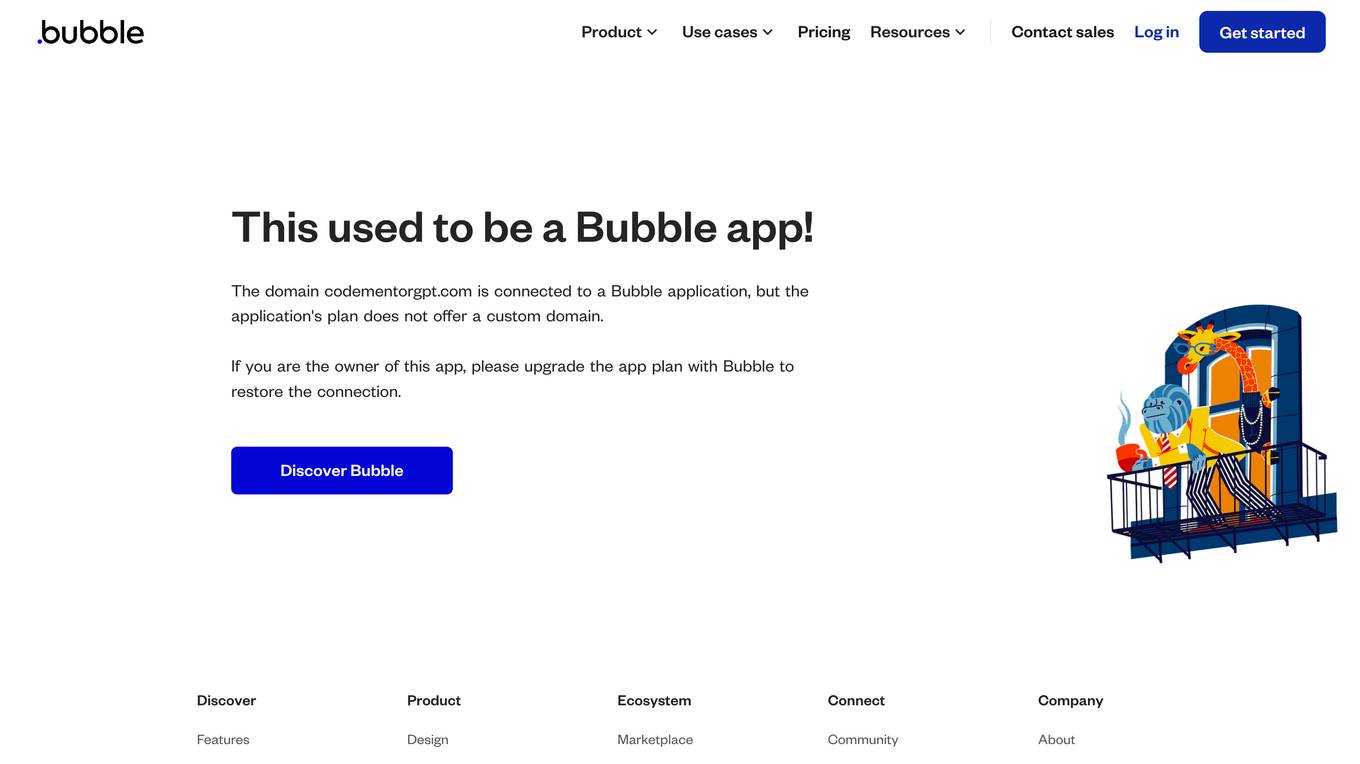
Nursing School Selection Guide
The website provides detailed information for beginners on selecting a nursing school, including points to consider, advantages and disadvantages of attending school, and what to study at nursing schools. It covers topics such as the curriculum, practical skills, and the importance of selecting a school based on personal goals and desired qualifications. The site also discusses the availability of dormitories, the purpose of nursing education, and the importance of clarifying learning goals and qualifications when choosing a nursing school.
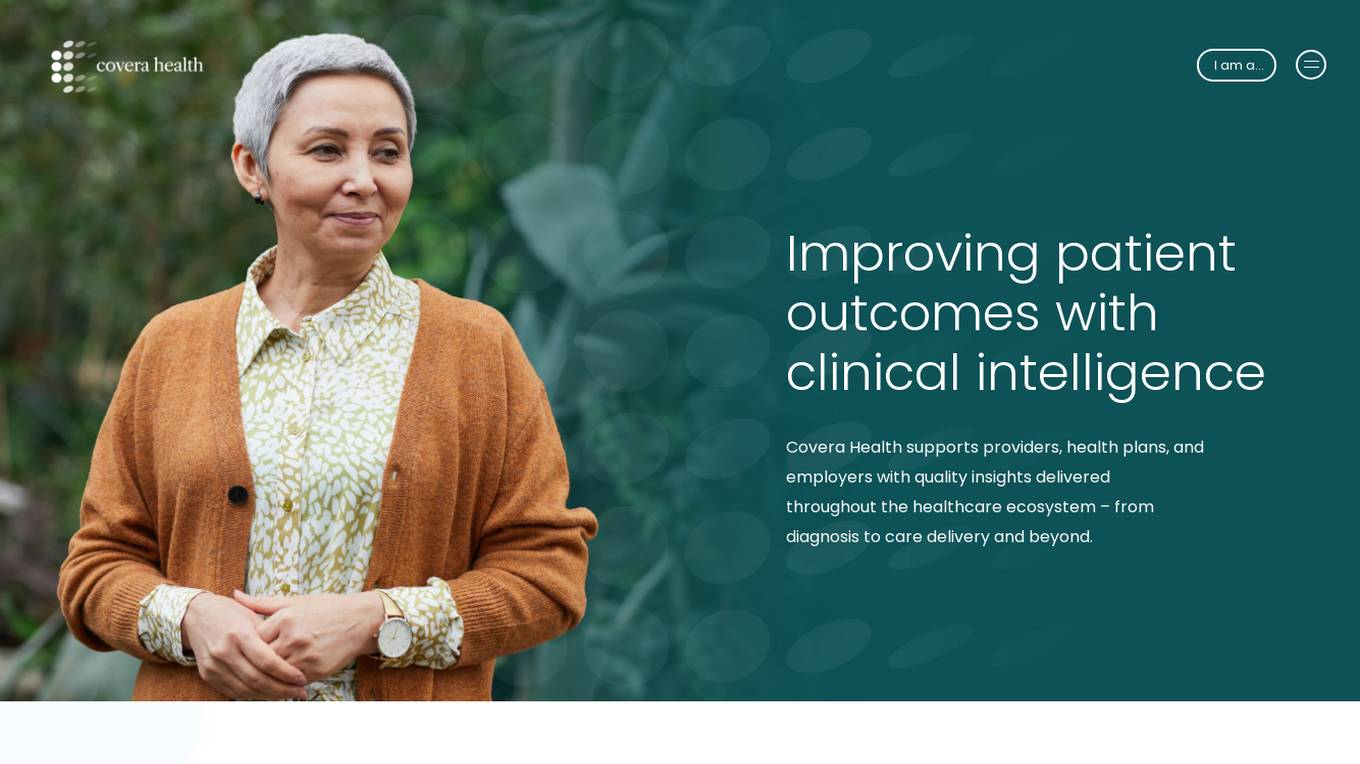
Covera Health
Covera Health is a clinical intelligence platform that supports the end-to-end delivery of clinical-grade, AI-powered quality insights for providers and insurers. The platform is seamlessly integrated across the healthcare ecosystem to elevate everything from diagnosis and care coordination to prior authorization and claims administration. Covera Health is certified by AHRQ as a Patient Safety Organization to safeguard access to provider and patient data.
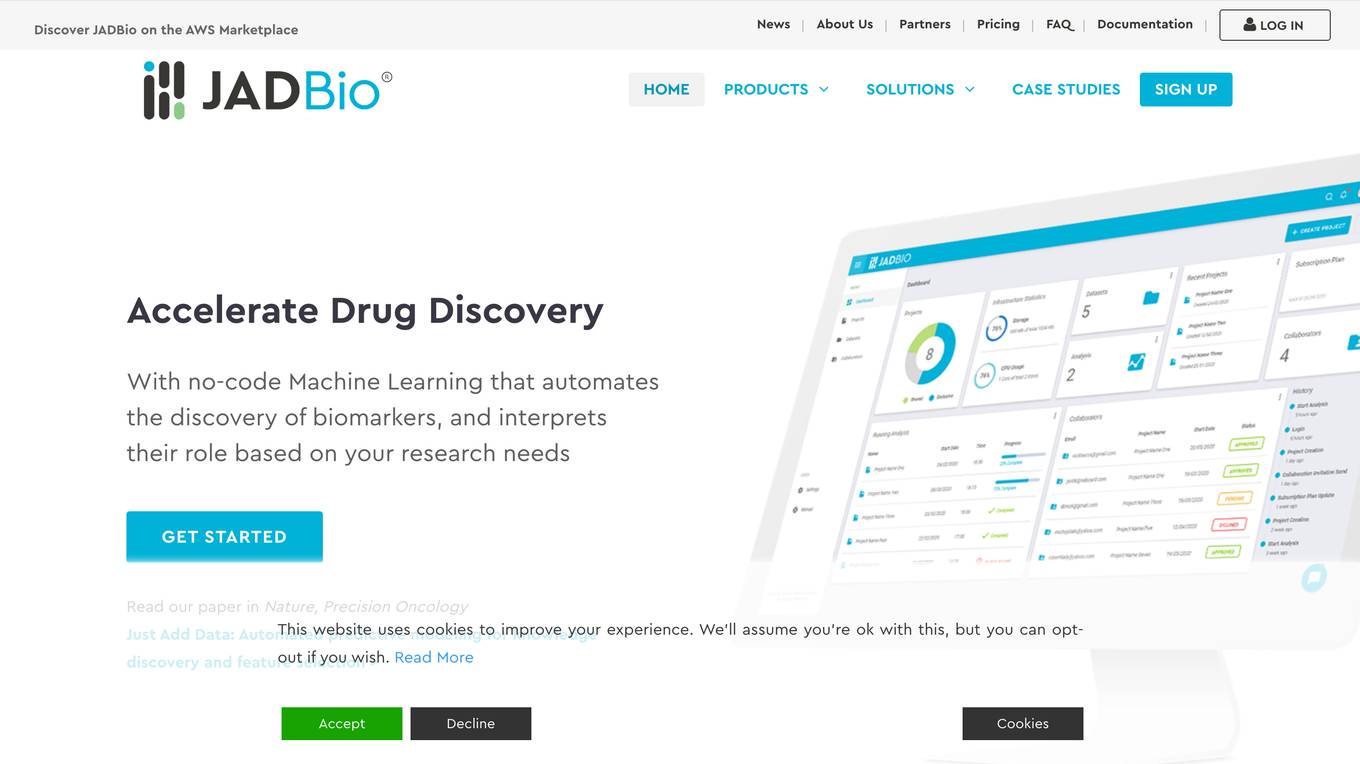
JADBio
JADBio is an automated machine learning (AutoML) platform designed to accelerate biomarker discovery and drug development processes. It offers a no-code solution that automates the discovery of biomarkers and interprets their role based on research needs. JADBio can parse multi-omics data, including genomics, transcriptome, metagenome, proteome, metabolome, phenotype/clinical data, and images, enabling users to efficiently discover insights for various conditions such as cancer, immune system disorders, chronic diseases, infectious diseases, and mental health. The platform is trusted by partners in precision health and medicine and is continuously evolving to disrupt drug discovery times and costs at all stages.

Salt AI
Salt AI is a development engine tailored for life sciences organizations, aiming to accelerate advancements in the field by enabling faster adoption and utilization of AI technologies. The platform offers reliable and reproducible AI processes, optimized for speed and efficiency, and promotes transparency and collaboration within workflows. With a focus on supporting best-in-class life sciences research models, Salt AI empowers users to enhance their understanding of biological processes through flexible and performant AI solutions.
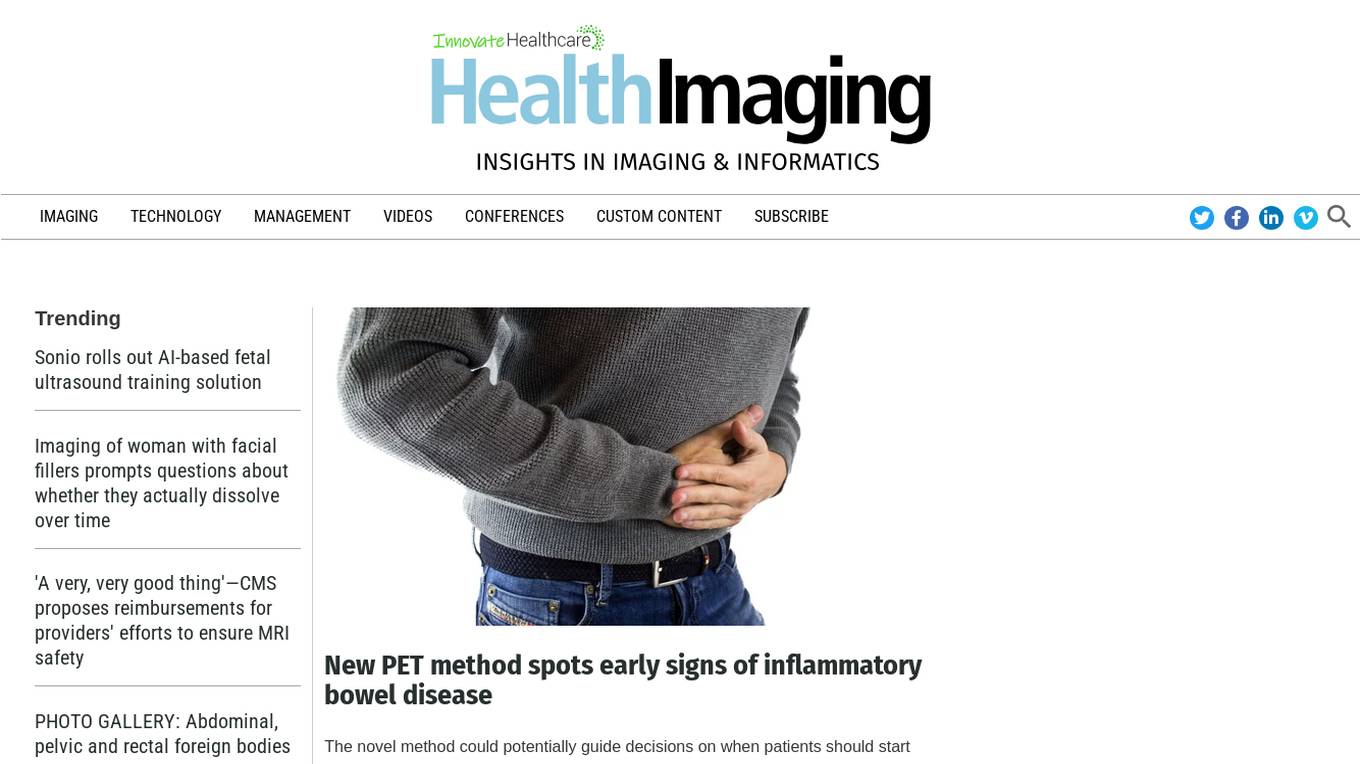
Health Imaging
Health Imaging is an AI-powered platform that focuses on providing cutting-edge solutions in medical imaging and healthcare management. The platform offers a wide range of features and tools that leverage artificial intelligence to enhance diagnostic accuracy, streamline workflows, and improve patient care. From advanced imaging technologies to AI-based training solutions, Health Imaging is at the forefront of innovation in the healthcare industry.
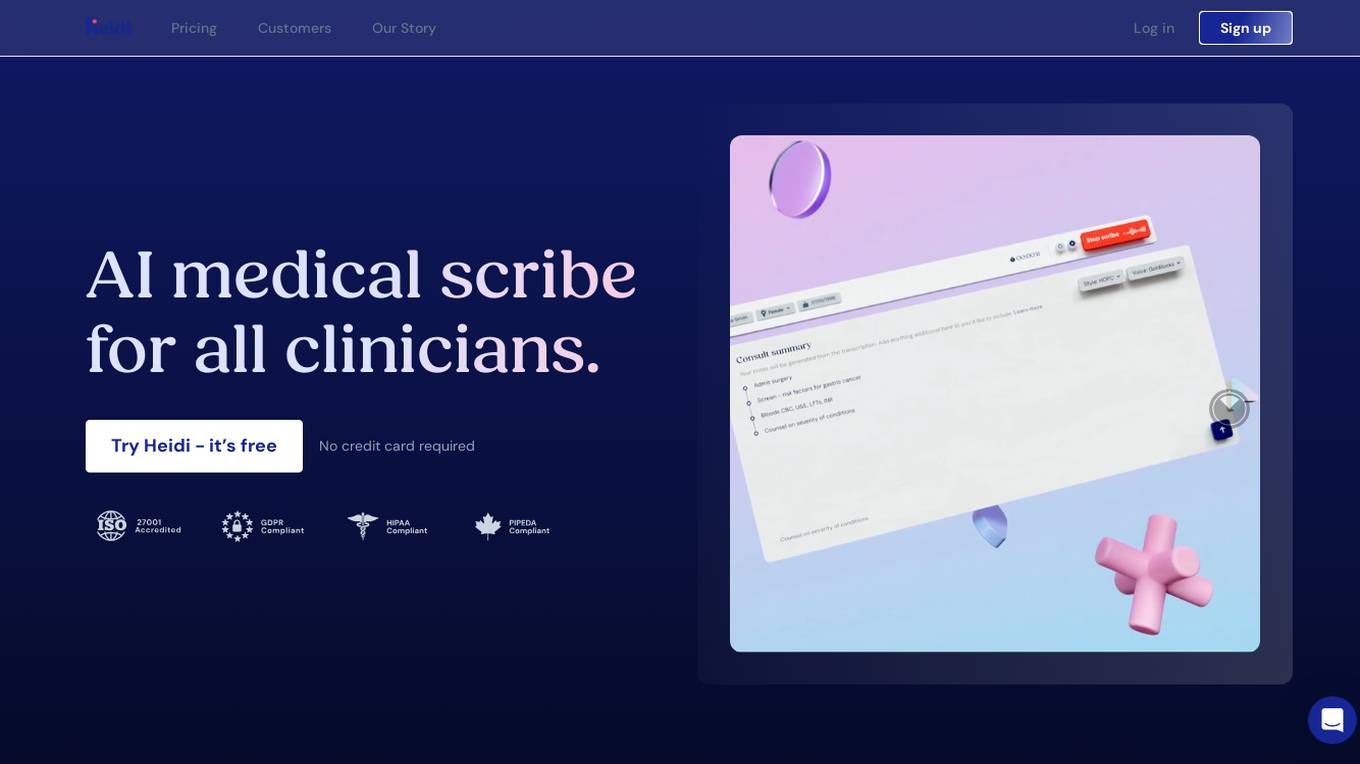
Heidi
Heidi is an AI-powered medical scribe that helps clinicians save time and improve patient care. It uses natural language processing to capture every detail of a patient visit, and then automatically generates a note that is tailored to the clinician's preferences. Heidi can also be used to create letters, add billing codes, and generate patient summaries. It is trusted by clinicians and healthcare staff in over 35 countries.

Iodine Software
Iodine Software is a healthcare technology company that provides AI-enabled solutions for revenue cycle management, clinical documentation integrity, and utilization management. The company's flagship product, AwareCDI, is a suite of solutions that addresses the root causes of mid-cycle revenue leakage from admission through post-billing review. AwareCDI uses Iodine's CognitiveML AI engine to spot what is missing in patient documentation based on clinical evidence. This enables healthcare organizations to maximize documentation integrity and revenue capture. Iodine Software also offers AwareUM, a continuous, intelligent prioritization solution for peak UM performance.
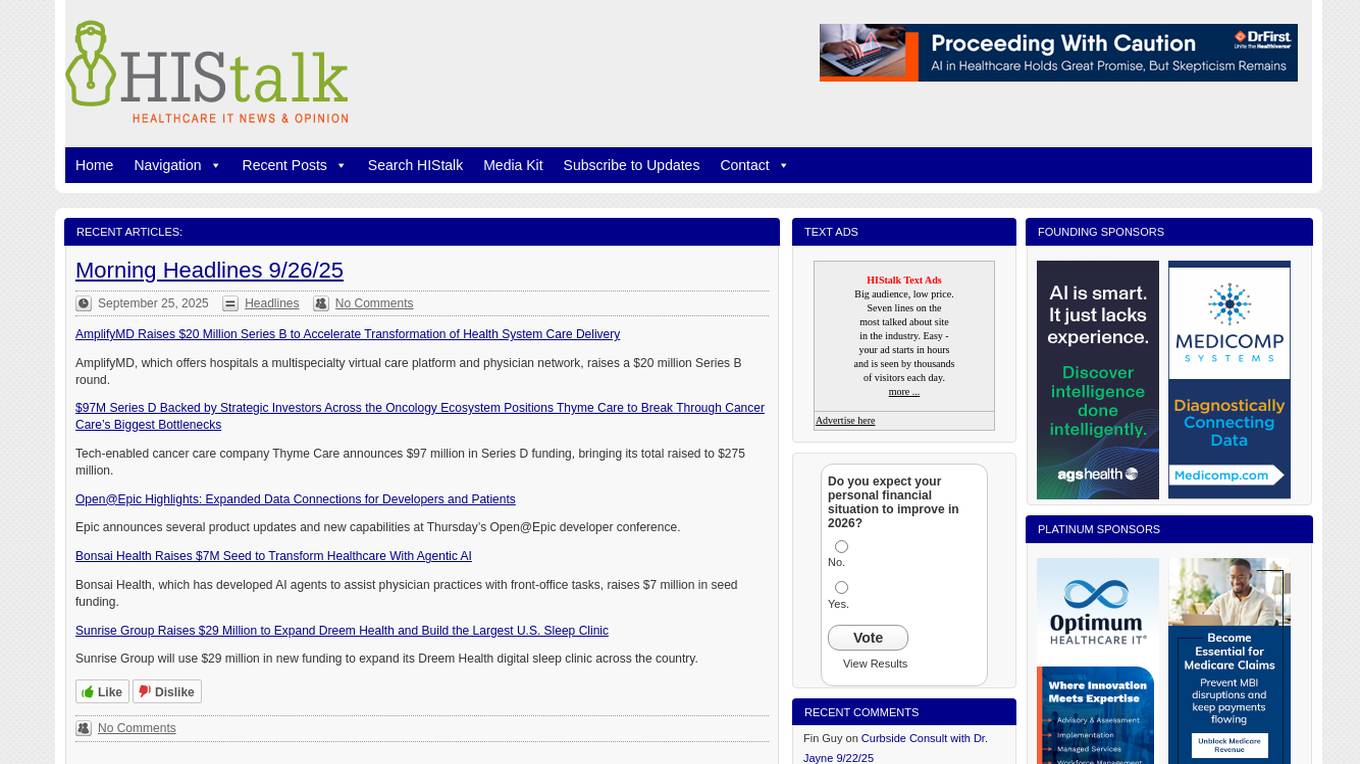
Healthcare IT News Hub
The website page text provides a glimpse into the healthcare IT industry, covering topics such as telehealth, AI advancements, and patient care. It discusses various news articles, acquisitions, funding rounds, and research findings related to healthcare technology. The content highlights the importance of telehealth, AI integration, patient engagement, and the impact of technology on healthcare delivery.
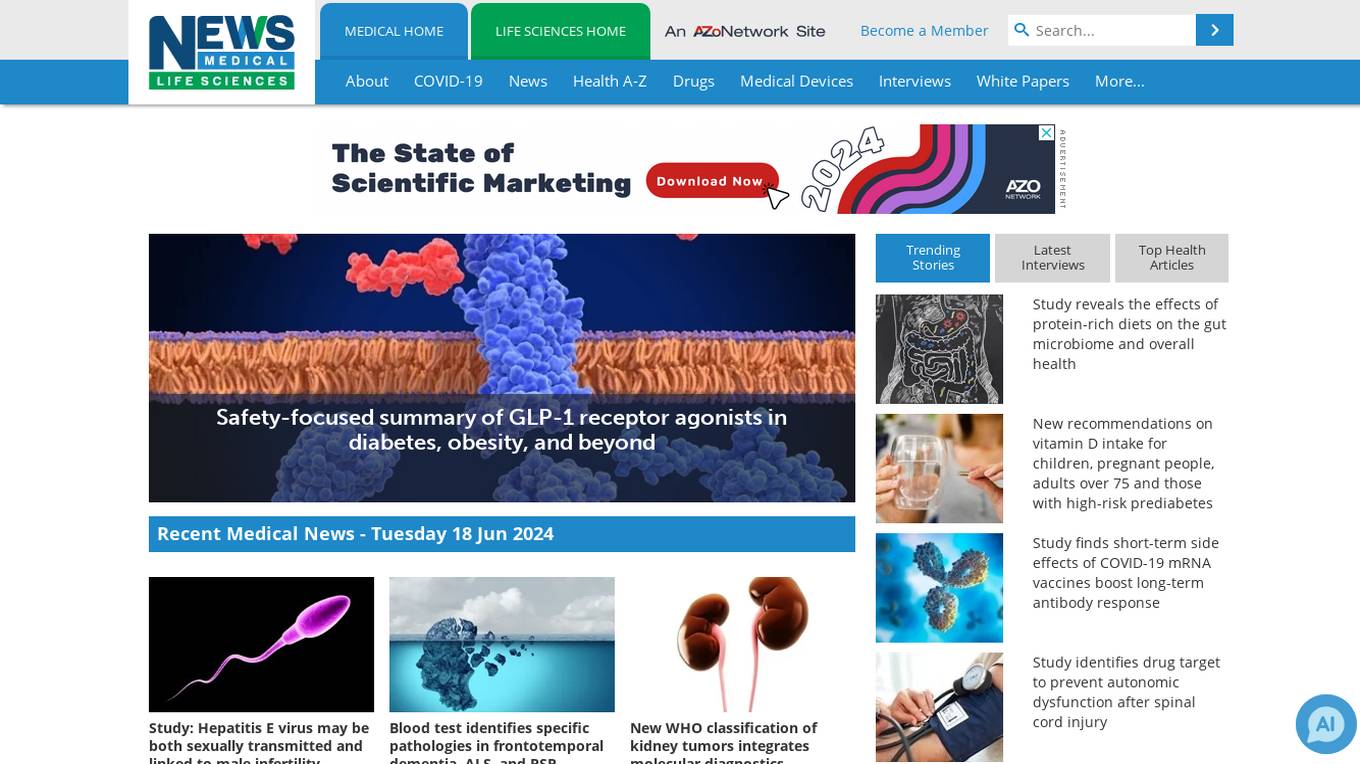
Medical News Hub
The website is a comprehensive platform providing medical news, articles, and resources covering a wide range of health topics such as COVID-19, artificial intelligence in healthcare, diseases, treatments, and medical advancements. It offers insights from experts, interviews, white papers, and newsletters in the fields of medicine and life sciences. Users can access information on various health categories, research findings, safety summaries, and trending stories in the medical and life sciences domains.
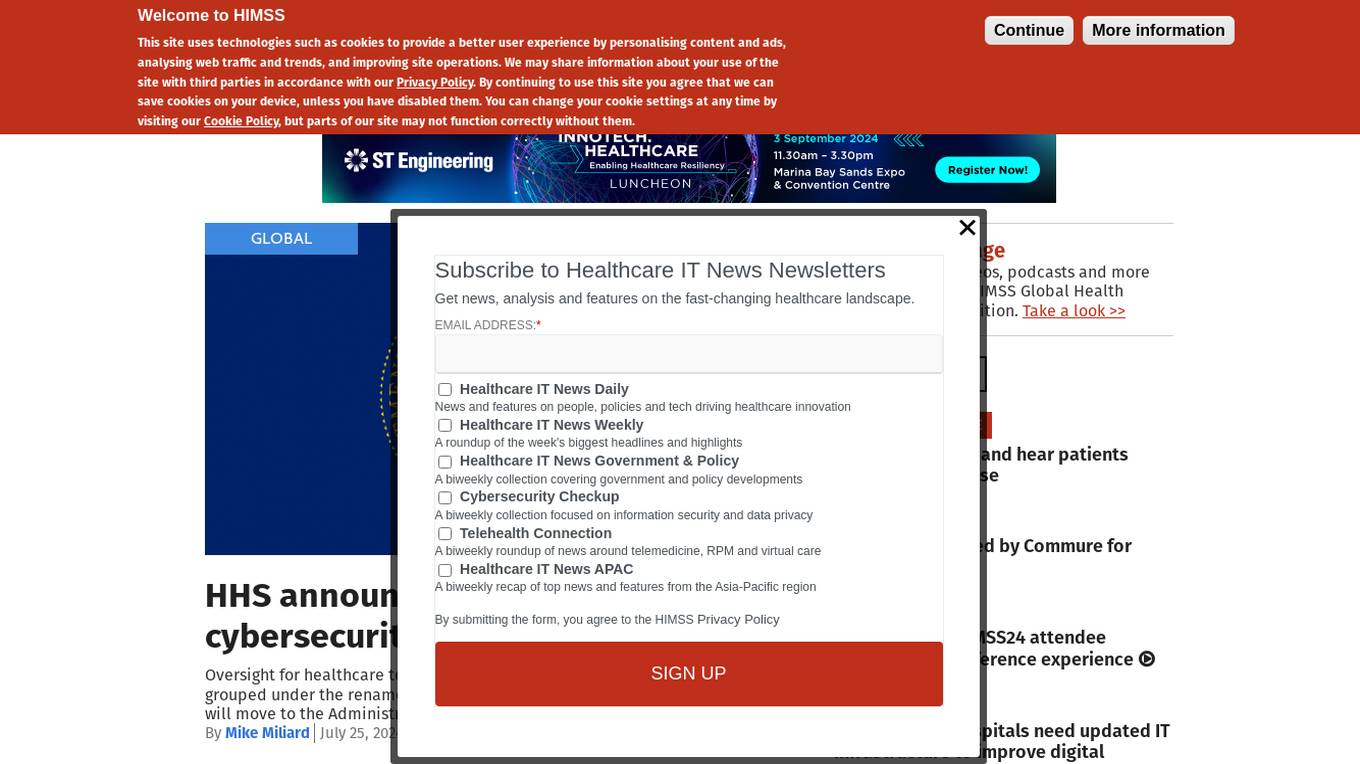
Healthcare IT News
Healthcare IT News is an AI-powered platform that provides the latest news and updates in the healthcare IT industry. The platform covers a wide range of topics including video analytics, artificial intelligence, cloud computing, EHR, government & policy, interoperability, patient engagement, population health, precision medicine, privacy & security, and telehealth. It offers insights, articles, and special projects related to AI, ML intelligence, cybersecurity, and more. Healthcare IT News aims to keep healthcare professionals informed about the latest trends and developments in the field.
0 - Open Source Tools
20 - OpenAI Gpts
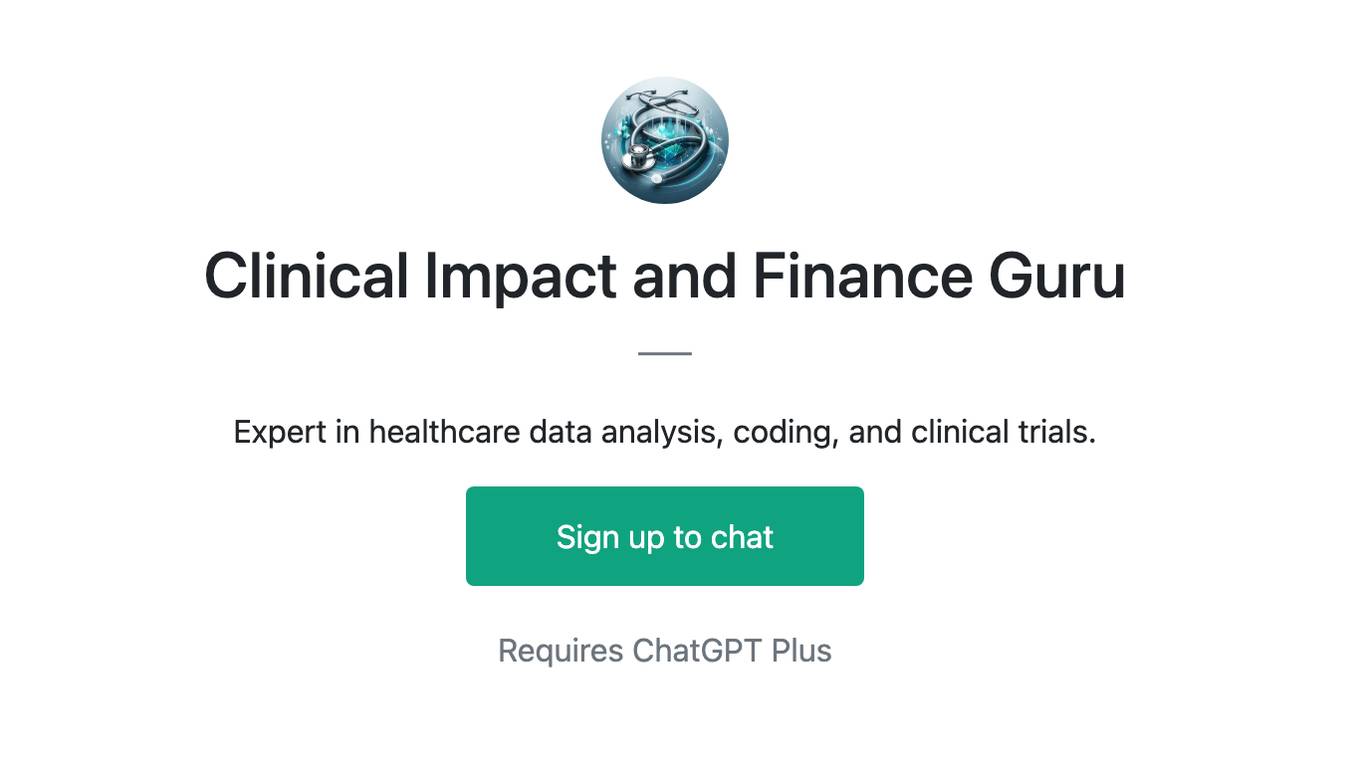
Clinical Impact and Finance Guru
Expert in healthcare data analysis, coding, and clinical trials.
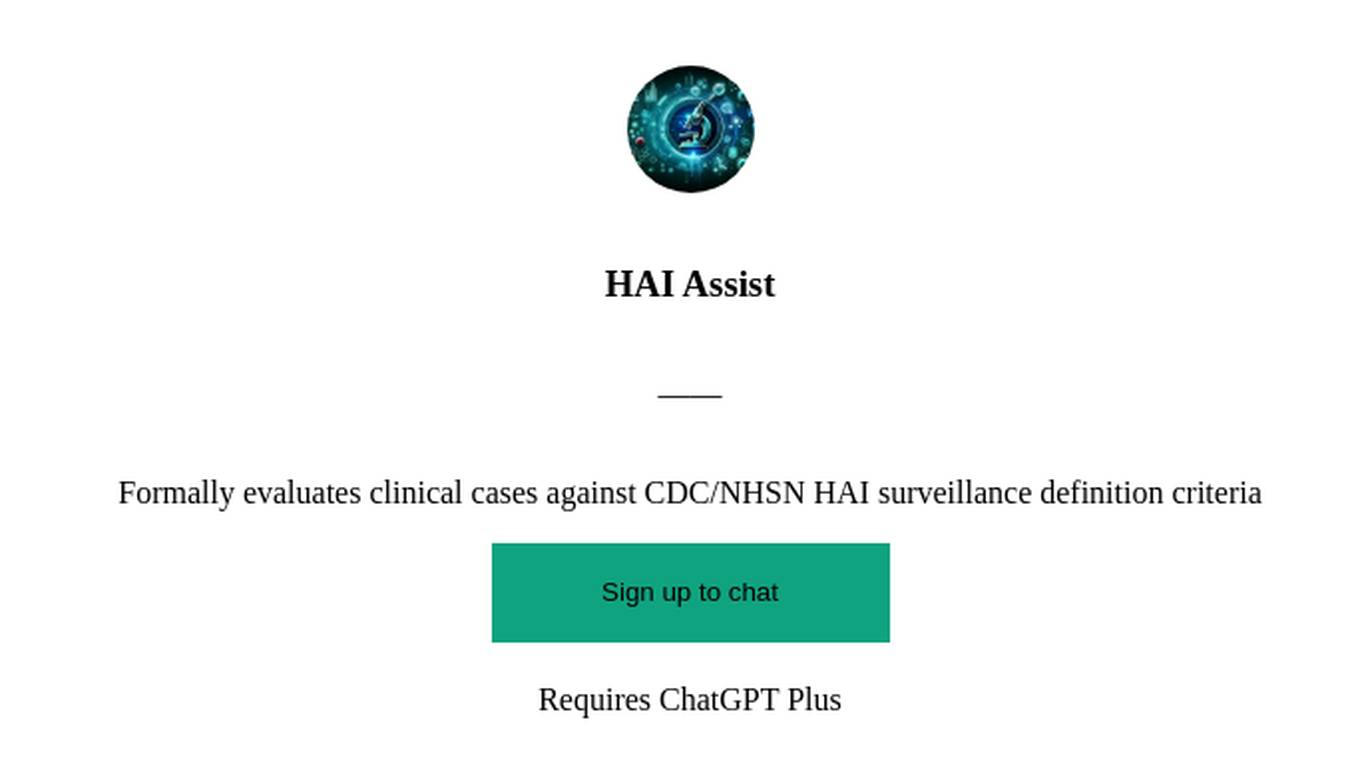
HAI Assist
Formally evaluates clinical cases against CDC/NHSN HAI surveillance definition criteria
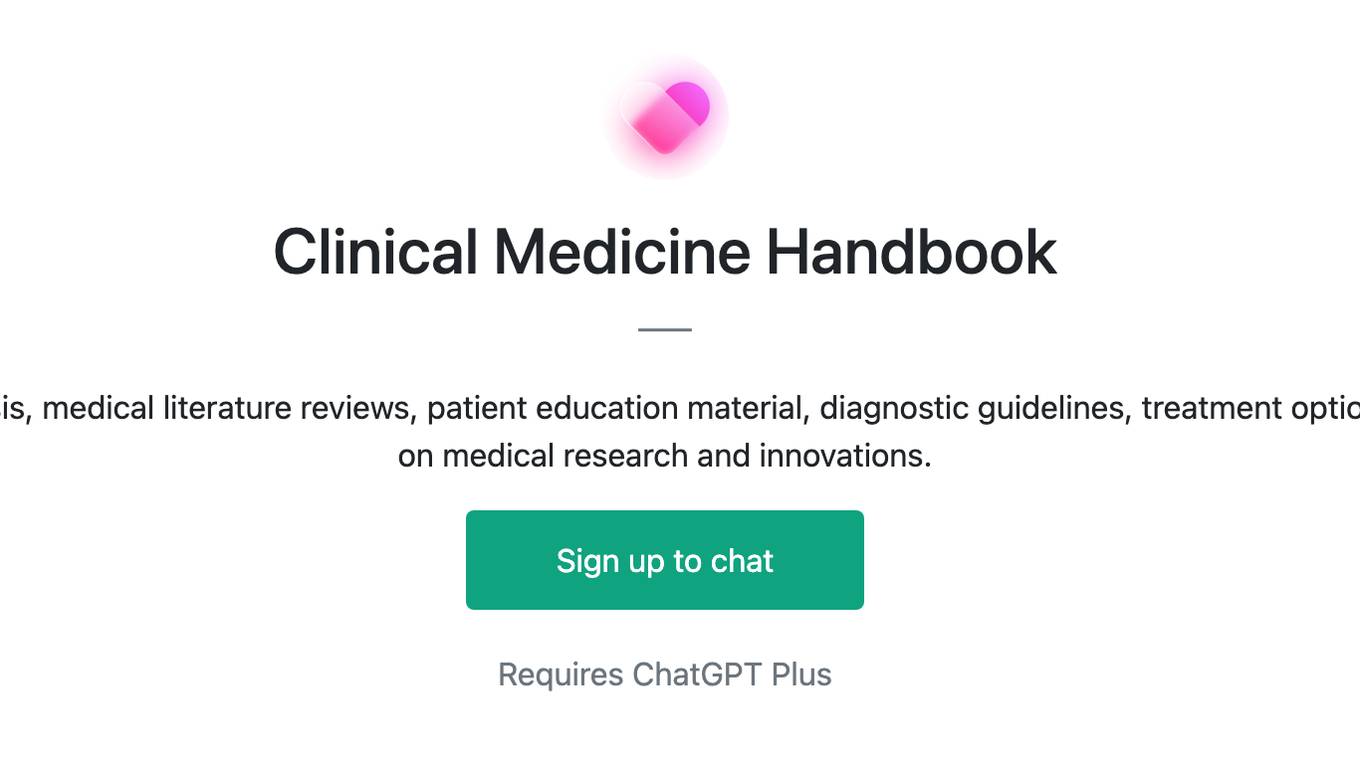
Clinical Medicine Handbook
I can assist doctors with information synthesis, medical literature reviews, patient education material, diagnostic guidelines, treatment options, ethical dilemmas, and staying updated on medical research and innovations.
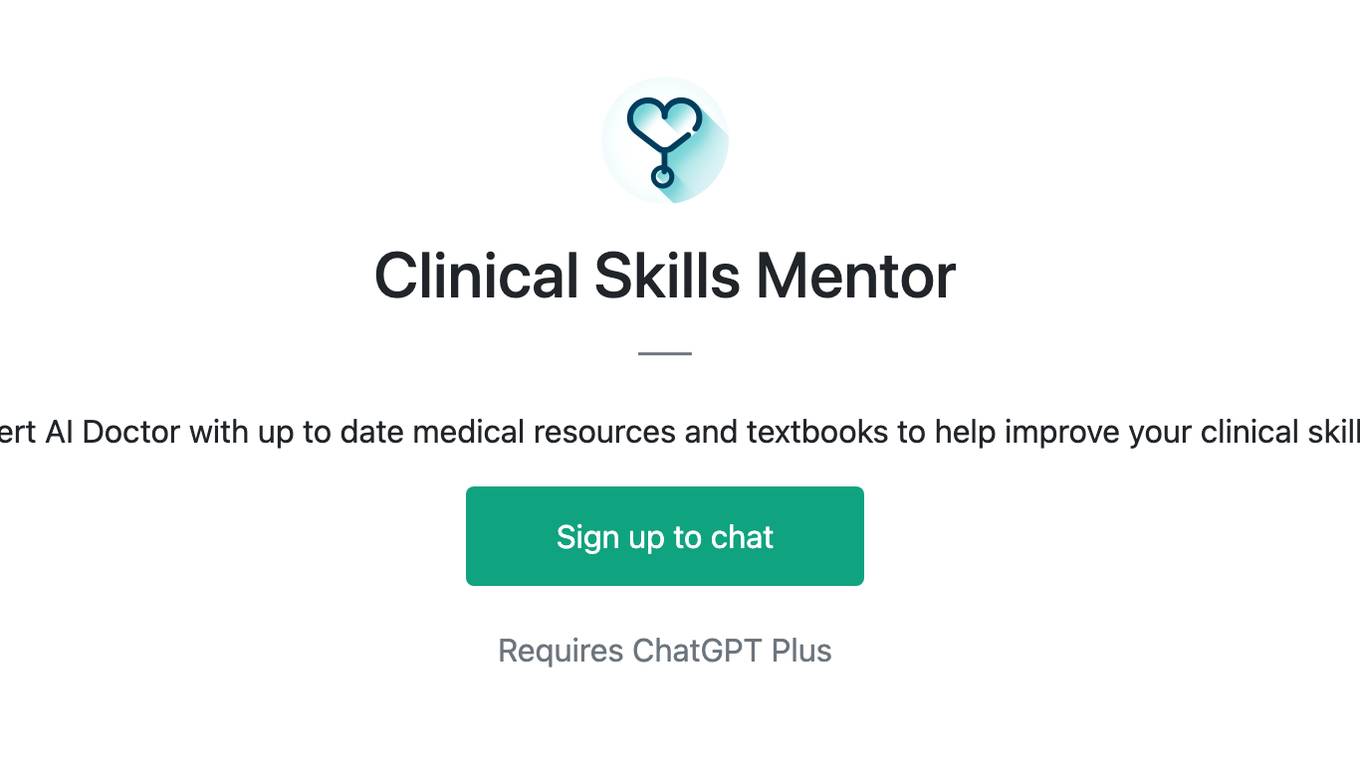
Clinical Skills Mentor
Expert AI Doctor with up to date medical resources and textbooks to help improve your clinical skills.
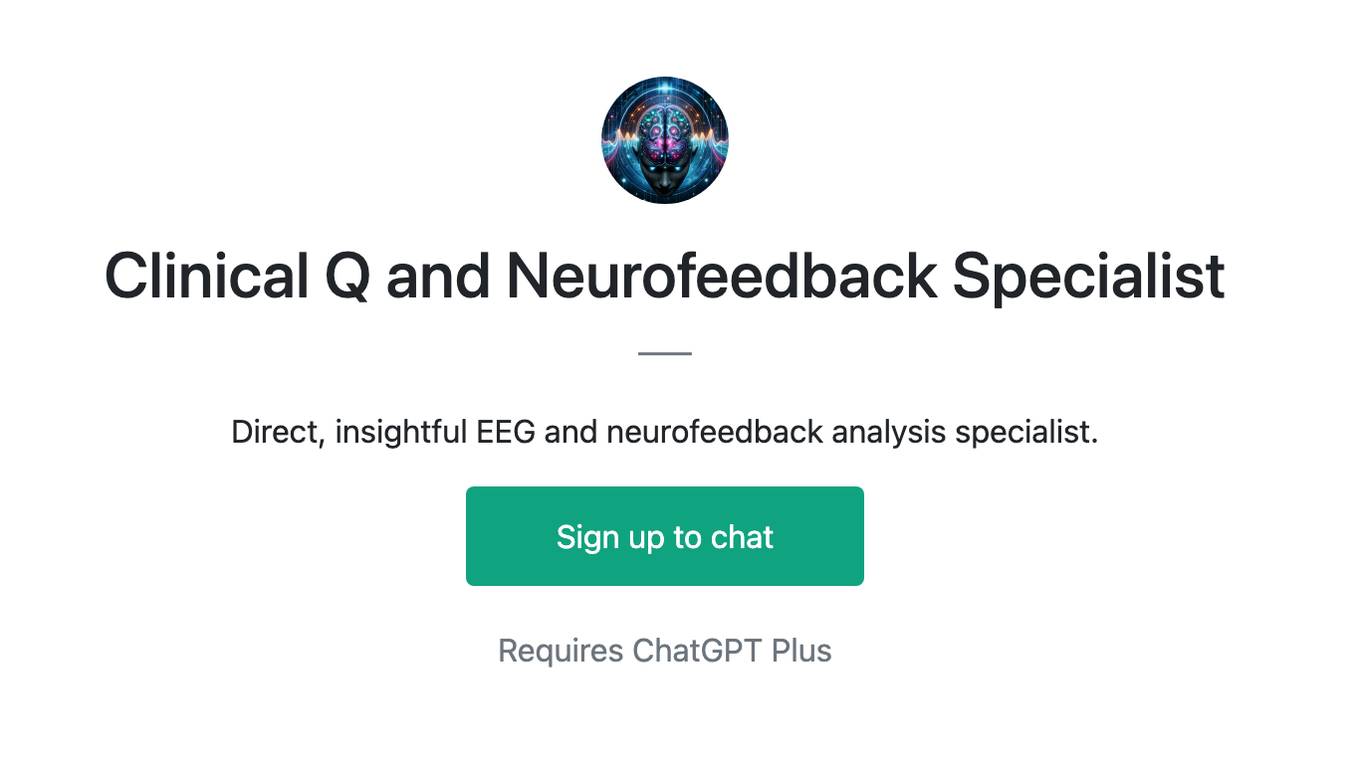
Clinical Q and Neurofeedback Specialist
Direct, insightful EEG and neurofeedback analysis specialist.
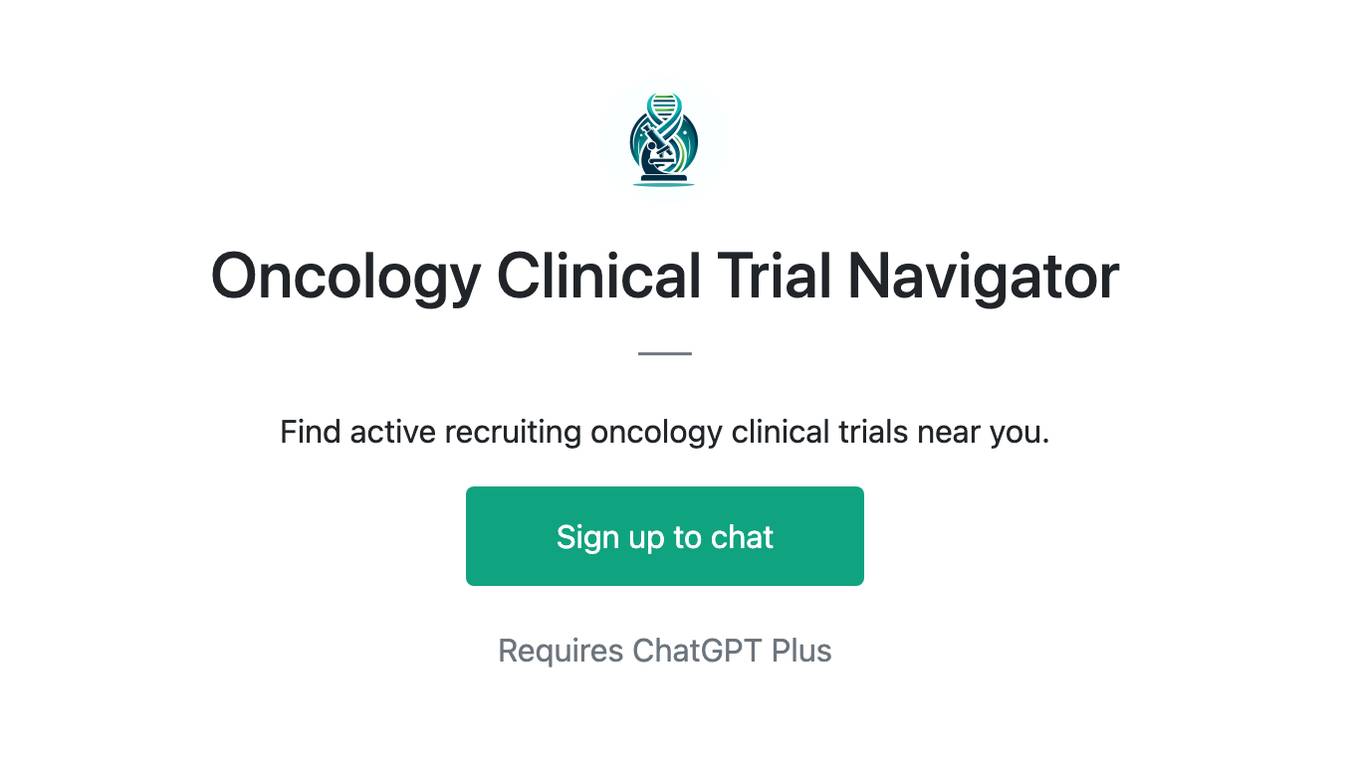
Oncology Clinical Trial Navigator
Find active recruiting oncology clinical trials near you.
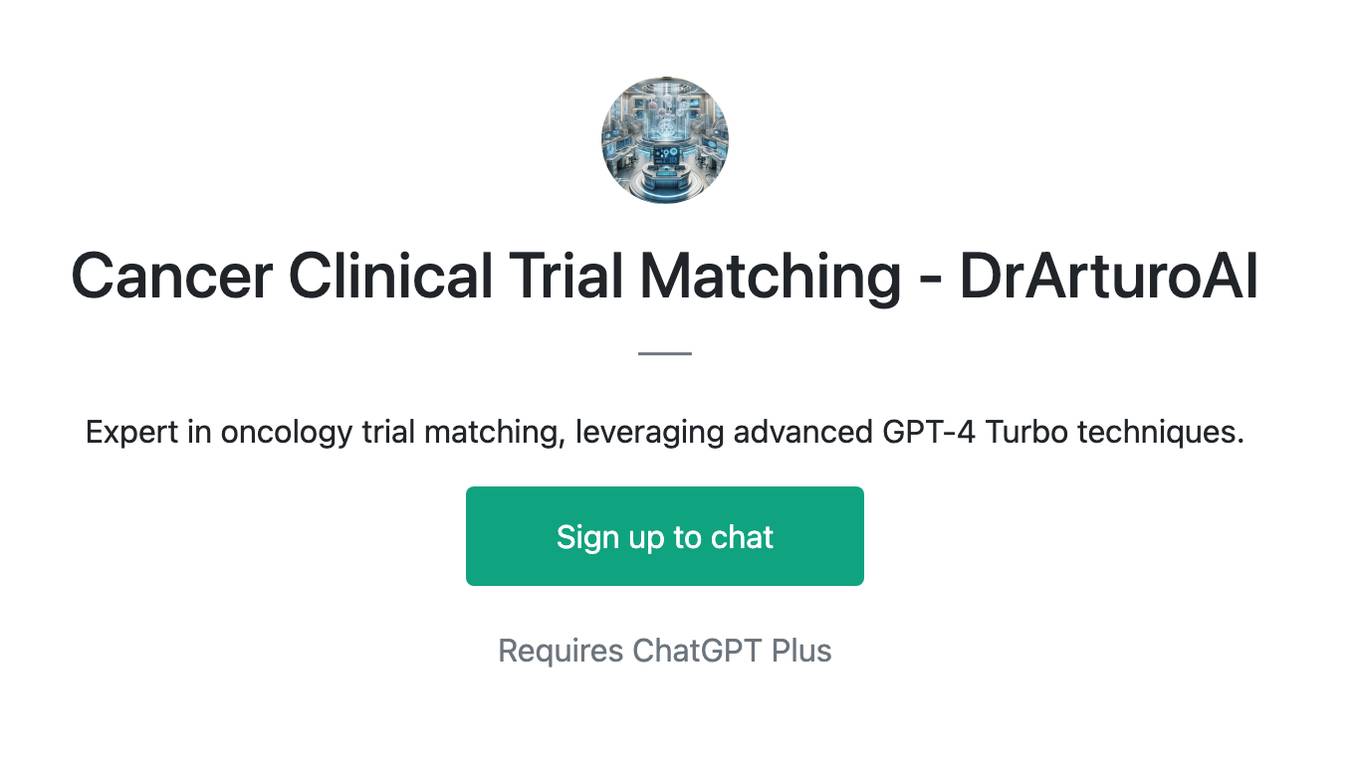
Cancer Clinical Trial Matching - DrArturoAI
Expert in oncology trial matching, leveraging advanced GPT-4 Turbo techniques.
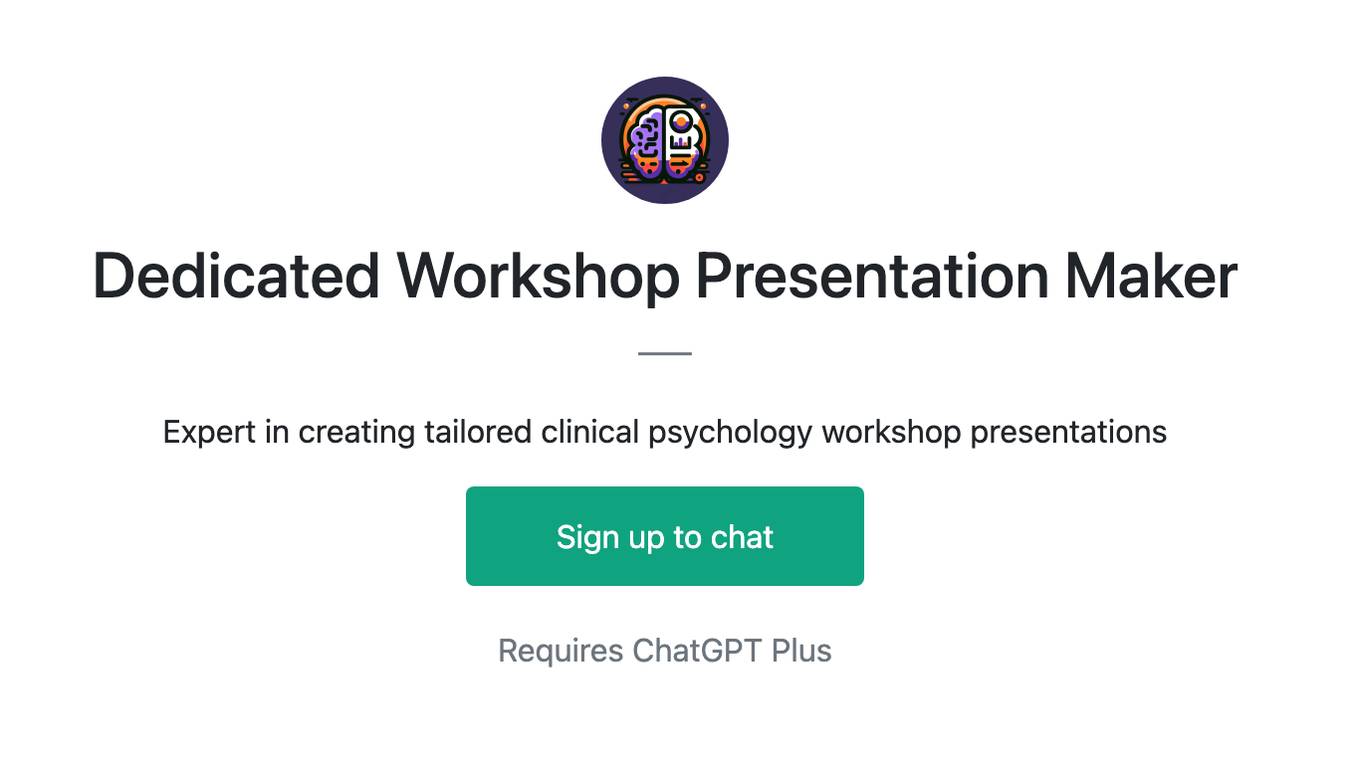
Dedicated Workshop Presentation Maker
Expert in creating tailored clinical psychology workshop presentations
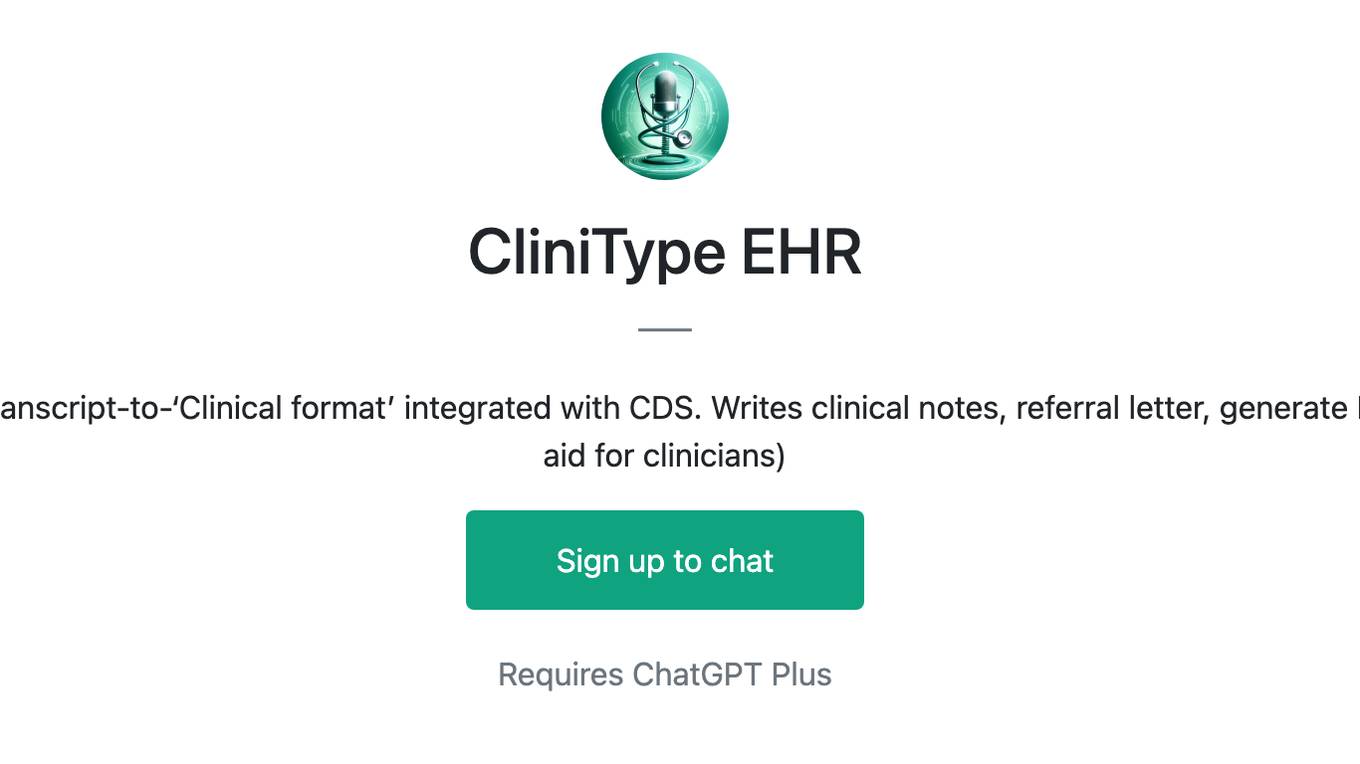
CliniType EHR
Voice-to-text, Vision-to-text transcription, Transcript-to-‘Clinical format’ integrated with CDS. Writes clinical notes, referral letter, generate PDF,prepare discharge summary. (Ultimate aid for clinicians)
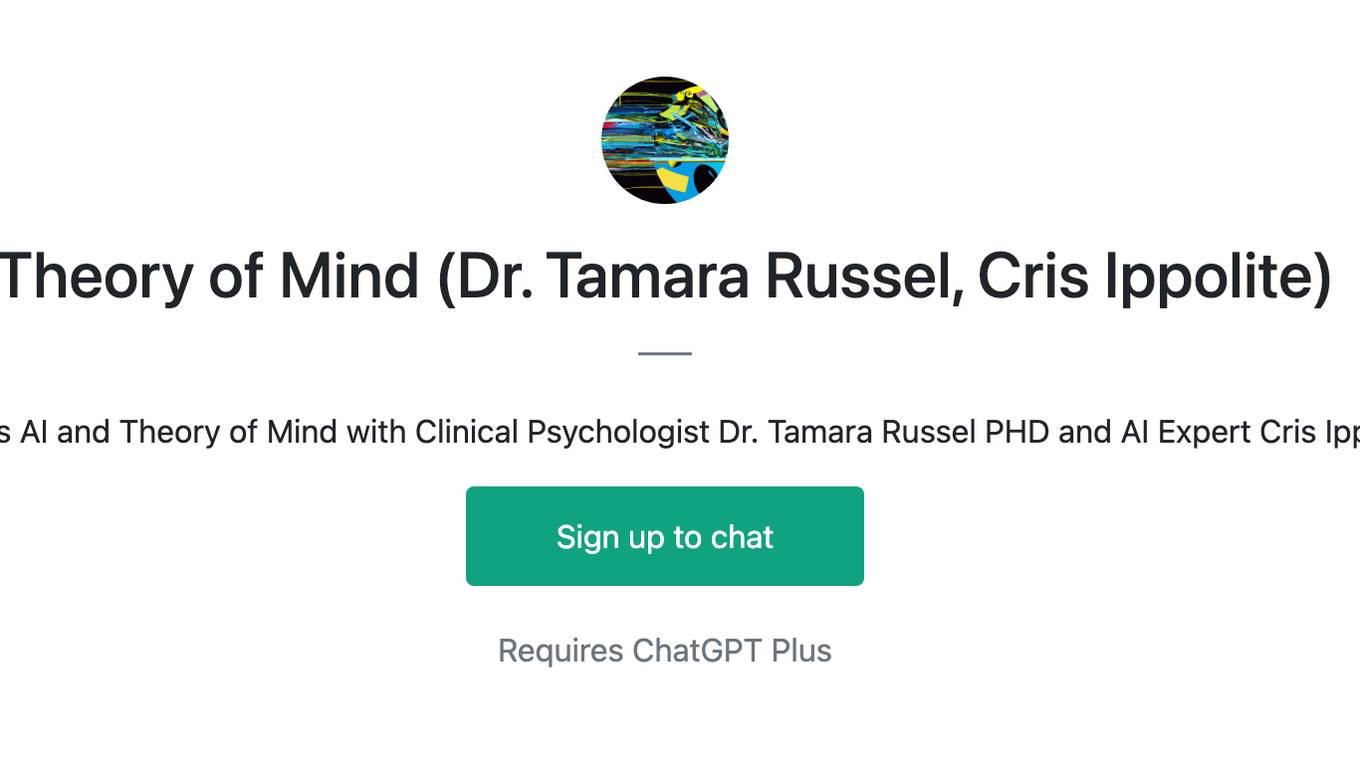
Theory of Mind (Dr. Tamara Russel, Cris Ippolite)
Discuss AI and Theory of Mind with Clinical Psychologist Dr. Tamara Russel PHD and AI Expert Cris Ippolite
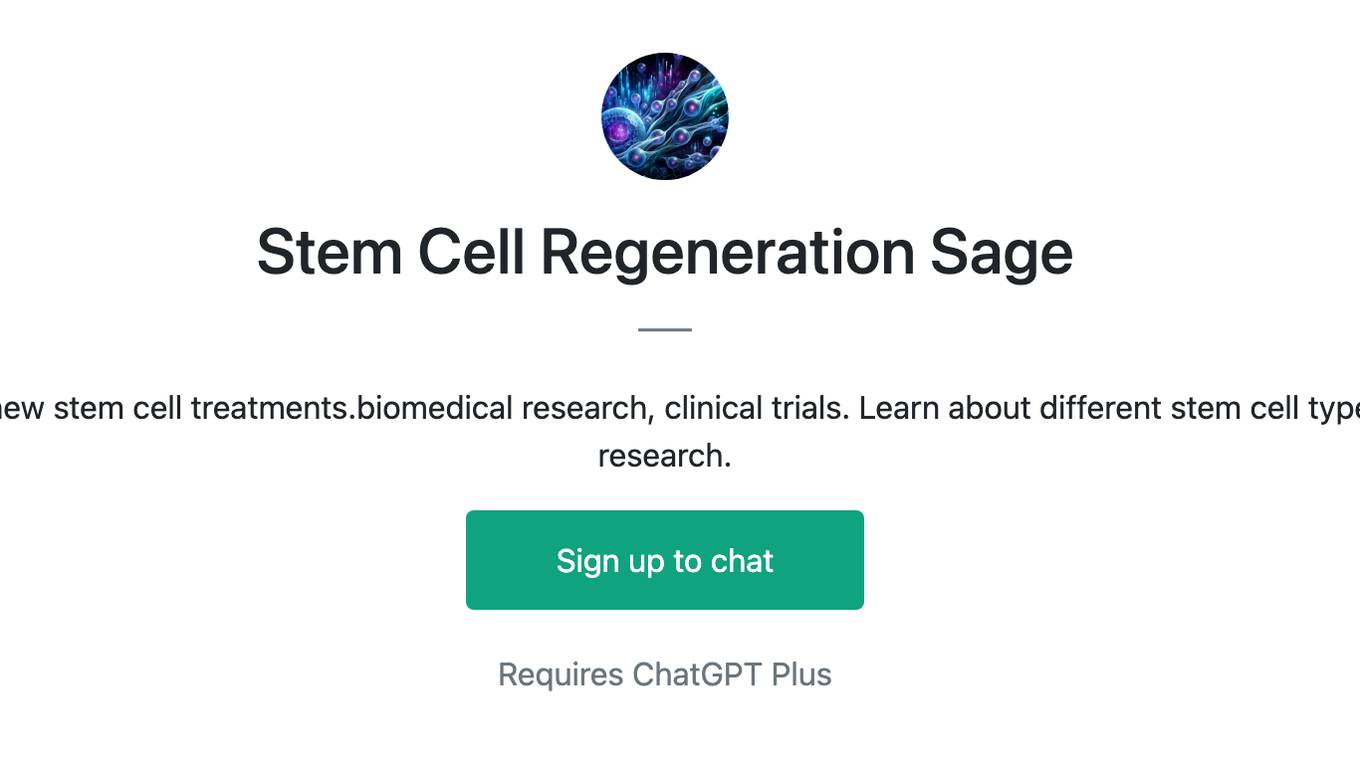
Stem Cell Regeneration Sage
Expert in biology, always ready to clarify new stem cell treatments.biomedical research, clinical trials. Learn about different stem cell types, current/future uses, and the latest in research.
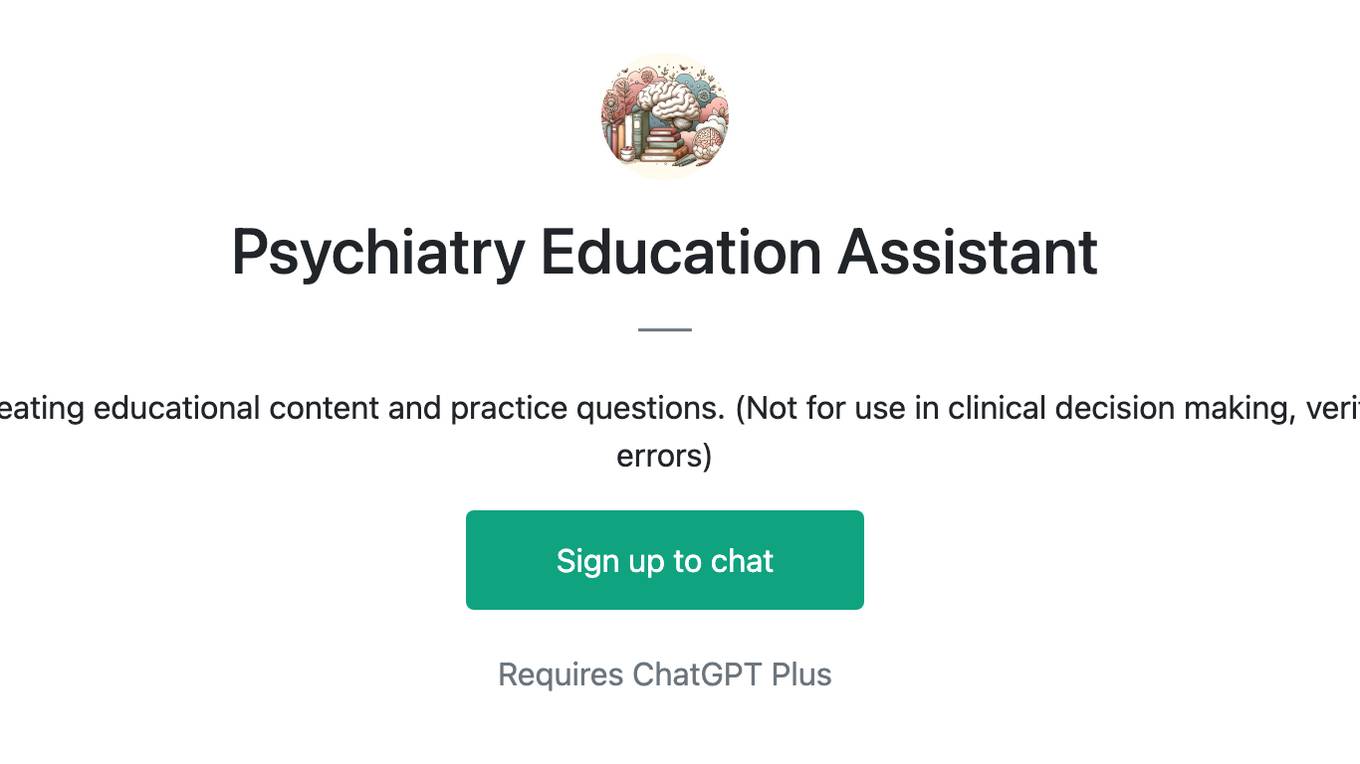
Psychiatry Education Assistant
An academic assistant for psychiatrists, creating educational content and practice questions. (Not for use in clinical decision making, verify all information, as model may produce errors)
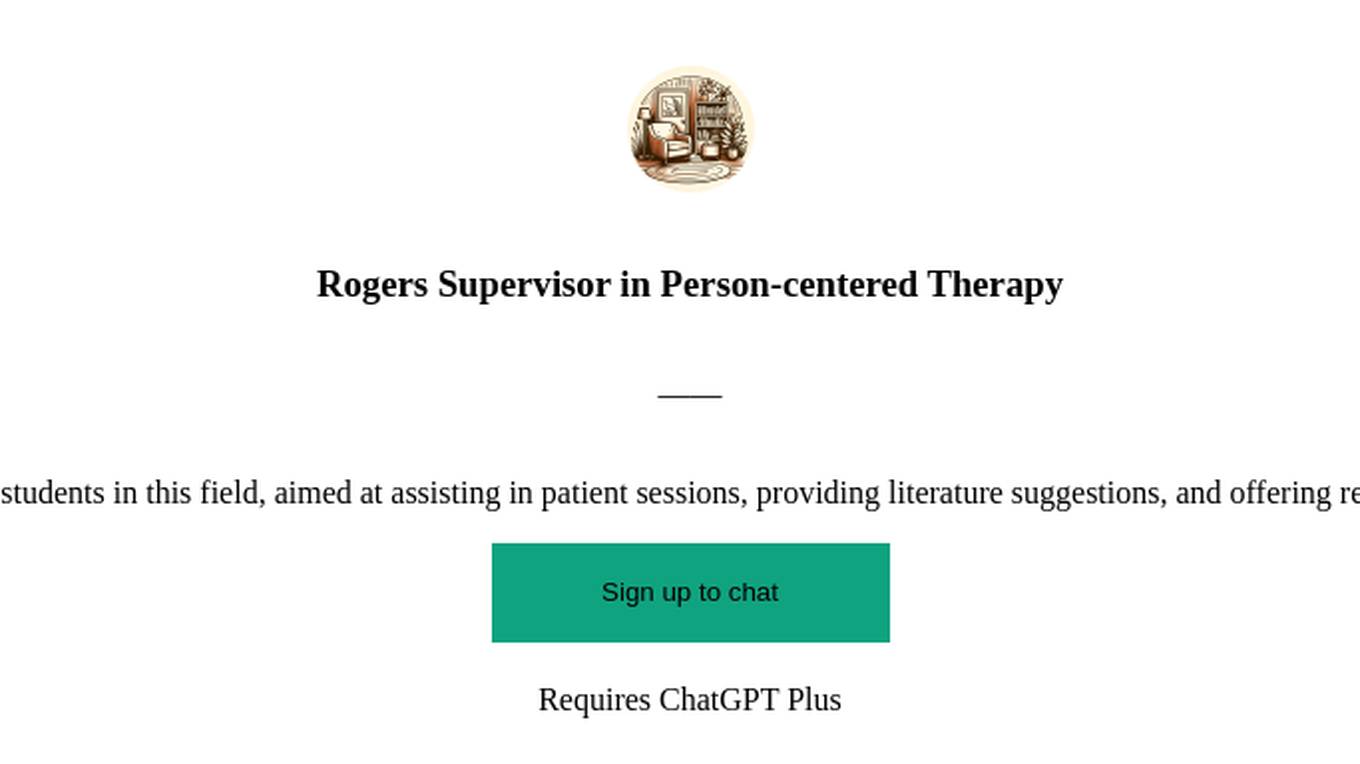
Rogers Supervisor in Person-centered Therapy
A guide for Therapists in Person-centered or students in this field, aimed at assisting in patient sessions, providing literature suggestions, and offering reflections on the clinical interventions of users.
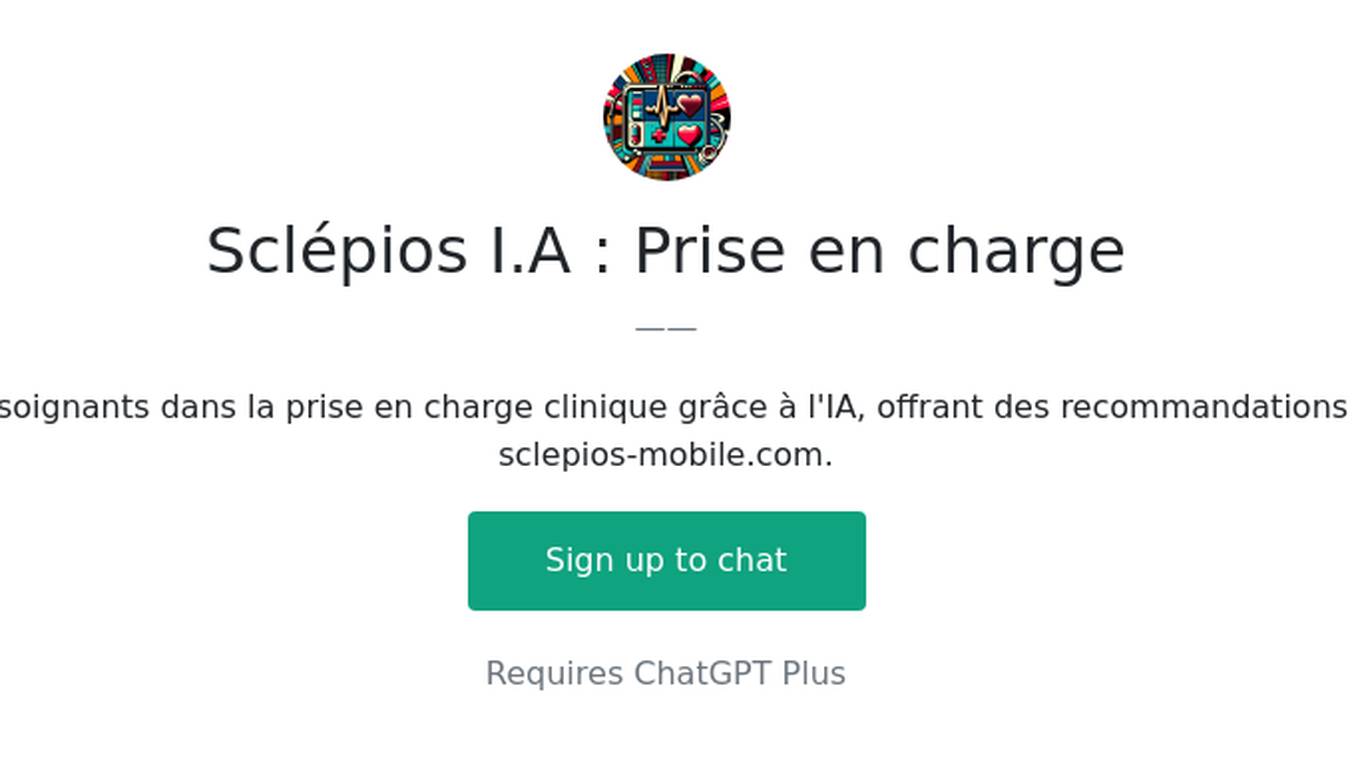
Sclépios I.A : Prise en charge
Le GPT custom de Sclépios IA guide les soignants dans la prise en charge clinique grâce à l'IA, offrant des recommandations précises en un instant. Plus d'infos sur sclepios-mobile.com.
